 Sign in
Sign in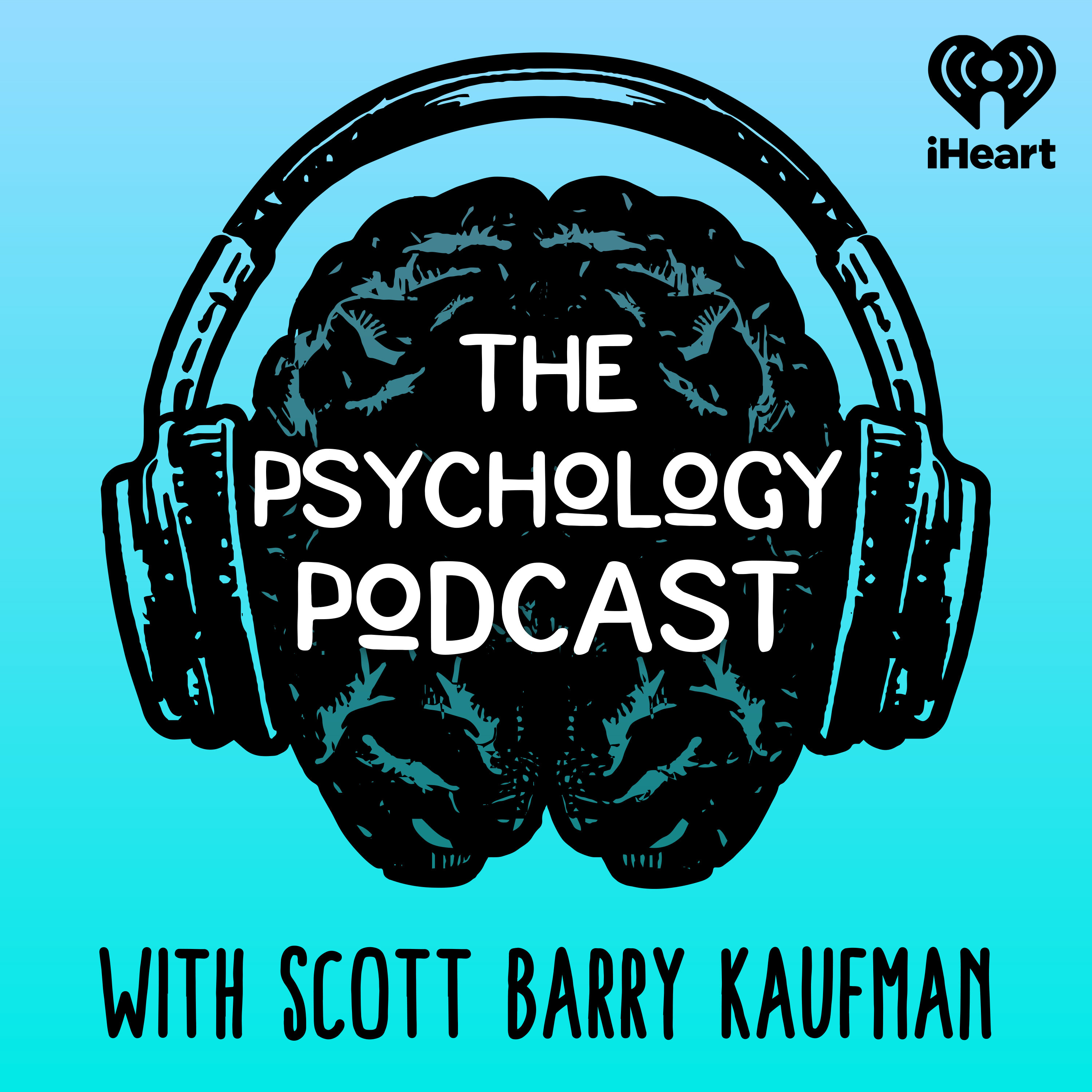
Science
iHeartPodcasts
In each episode, we talk with inspiring scientists, thinkers, and other self-actualized individuals who will give you a greater understanding of yourself, others, and the world we live in. Scott Barry Kaufman explores the depths of human potential and tries to get a glimpse into human possibility in every episode.

Ayelet Fishbach || How to Motivate Yourself
In this episode, I talk to award-winning psychologist Ayelet Fishbach about the science of motivation. How do we motivate ourselves to do anything? From her extensive research, Ayelet shares with us four crucial strategies for successful behavior change: identify the right goals, avoid the “middle”, resist temptations, and seek social support. And equally important, she gives tips on how to sustain motivation for longer periods of time. We also touch on the topics of reinforcement, flow, deliberate practice, self-control, and Maslow’s hierarchy of needs. BioDr. Ayelet Fishbach is the Jeffrey Breakenridge Keller Professor of Behavioral Science and Marketing at the University of Chicago Booth School of Business, and the past president of the Society for the Study of Motivation and the International Social Cognition Network (ISCON). She is an expert on motivation and decision making and the author of Get it Done: Surprising Lessons from the Science of Motivation. Dr. Ayelet’s groundbreaking research on human motivation has won her several international awards, including the Society of Experimental Social Psychology’s Best Dissertation Award and Career Trajectory Award, and the Fulbright Educational Foundation Award.Website: www.ayeletfishbach.comTwitter: @ayeletfishbach Topics01:28 What is motivation science?03:15 Maslow’s hierarchy of needs as motivation07:07 Choosing the right goals 12:42 Goals aren't chores14:42 Quantify the goal-setting process 17:40 The effect of incentives on motivation20:41 Ayelet’s view on SMART Goals22:53 Intrinsic and extrinsic motivation27:26 Flow, deliberate practice, and discomfort 30:58 Sustain motivation with feedback34:21 Overcome the “middle problem”38:00 Learn to balance multiple goals43:17 Identify and resist temptation 48:39 The glass half-empty mindset51:50 How to learn from negative feedback56:54 Do relationships affect our pursuit of goals?See omnystudio.com/listener for privacy information.
01:03:3820/01/2022

Oliver Burkeman || Time Management for Mortals
In this episode, I talk to bestselling author Oliver Burkeman about his latest book Four Thousand Weeks. On the surface, it’s easy to mistake it for another self-help book on time management. But instead of enthusing about productivity hacks, Oliver challenges his readers to confront the finite nature of humanity. By doing so, he argues we can live fuller lives—without having to always carry the fear of missing out. We also touch on the topics of procrastination, positive psychology, flow, realism, deep time, and patience.BioOliver Burkeman is a journalist for The Guardian. From 2006 to 2020, he wrote the popular weekly column on psychology called “This Column Will Change Your Life”. He is the author of The Antidote: Happiness for People Who Can't Stand Positive Thinking and Help! How to Become Slightly Happier and Get a Bit More Done. In 2015, he won the Foreign Press Association’s Young Journalist of the Year award, and has been short-listed for the Orwell Prize. His most recent book is Four Thousand Weeks: Time Management for Mortals.Website: www.oliverburkeman.comTwitter: @oliverburkeman Topics00:02:03 The efficiency trap00:05:34 Accepting human limitations00:08:35 Why we handicap ourselves00:13:07 How to be a better procrastinator00:18:32 Each activity is paid for with your life00:20:55 The joy of missing out00:23:55 Harness more deep time00:27:57 The common theme of Oliver’s books 00:32:02 Realism and doing the impossible00:37:29 Productivity and self-worth00:40:53 Embracing boredom instead of acceleration00:46:14 Developing a taste for problems00:50:21 Radical incrementalism00:57:30 “Originality lies on the far side of unoriginality”01:01:06 How time management distracts us from wonder01:03:50 Oliver’s approach to new year resolutionsSee omnystudio.com/listener for privacy information.
01:02:0913/01/2022

Ryan Holiday || How to Have Courage
In this episode, I talk to bestselling author Ryan Holiday about his newest book Courage is Calling. We discuss his unique definition of courage, and how people can practice it in their daily lives. Upon a closer examination of history, Ryan and I question whether the stories of American heroism are as honorable as we’ve been led to believe. We also touch on the topics of social justice, hope, stoicism, resilience, and virtues. BioRyan Holiday is the bestselling author of Trust Me, I’m Lying; The Obstacle Is the Way; Ego Is the Enemy; Conspiracy and other books about marketing, culture, and the human condition. His work has been translated into over 30 languages and has appeared everywhere from the New York Times to Fast Company. His company, Brass Check, has advised companies such as Google, TASER, and Complex, as well as multi-platinum musicians and some of the biggest authors in the world. He lives in Austin, Texas.Website: ryanholiday.netTwitter: @RyanHoliday Topics06:21 Ryan’s definition of courage10:06 Speaking truth to power14:02 History’s competing narratives 17:50 Taking down Confederate monuments20:12 Social justice, politics, and virtues 25:35 Staying true to the ethical frameworks of philosophy32:57 Stoicism and Ryan’s values38:08 Heroism vs courage42:47 Silence is violence46:58 Fearlessness can inspire50:28 No hero is perfect52:22 Hope is the most courageous thing53:10 How to practice courageSee omnystudio.com/listener for privacy information.
53:5906/01/2022

Robert Greene || Strategy, Seduction, and the Sublime
In this episode, I talk to international bestselling author Robert Greene about strategy, seduction, and the sublime. Robert implores us to get comfortable with the dark side of human nature and society. He argues that by acknowledging the reality of human interactions, we can use certain strategies to help us effectively navigate the workplace, our relationships, and daily life. We also touch on the topics of empathy, imagination, charisma, power, and his upcoming book on transcendence and the sublime.Chatting with Robert is always such a delight as we have many mutual areas of interest. I have been a long-time admirer of his books, and remember reading them in college and thinking that he seems to just get it. I hope you enjoyed this high-level discussion as much as I did.BioRobert Greene is an author and speaker known for his books on strategy, power and seduction. He graduated from U.C. Berkeley and the University of Wisconsin at Madison with a degree in classical studies. He has written six international bestsellers: The 48 Laws of Power, The Art of Seduction, The 33 Strategies of War, The 50th Law, Mastery, and The Laws of Human Nature. Recently, he published The Daily Laws: 366 Meditations on Power, Seduction, Mastery. Greene’s books are hailed by everyone from war historians to the biggest musicians in the industry including Jay-Z, Drake, and 50 Cent.Website: powerseductionandwar.comTwitter: @RobertGreene Topics02:12 Robert’s health 03:43 The Daily Laws 04:58 What is a radical realist? 10:10 Empathy is like a telepathic connection14:59 The human desire for fantasy18:50 Etiquette is deception22:17 How to live with the harsh truths of reality28:03 Poeticize your presence31:16 Channel pain into charisma35:36 Stop being so nice all the time39:08 Mix harshness and kindness42:36 The primary law of human nature 46:08 Embrace your dark side50:33 Schadenfreude vs mitfreude53:46 The Pygmalion Effect56:17 The integration of the shadow01:02:05 The Law of the Sublime01:08:14 The “post-mortem life”01:10:03 The sublime is in the everydaySee omnystudio.com/listener for privacy information.
01:10:0530/12/2021

Joy Lawson Davis and Deb Douglas || Empowering Underrepresented Gifted Students
In this episode, I talk to Joy Lawson Davis and Deb Douglas about gifted education. Specifically, we identify the underrepresented population of gifted students and the unique cultural barriers they face. Joy and Deb share their definition of what self-advocacy is and why it’s a skill everyone should have. They give helpful tips and resources for educators, parents, and advocates on how to find and nurture gifted potential. We also touch on the topics of equity, test preparation, IQ, special education, and intersectionality.BioDr. Joy Lawson Davis is a career educator with over 40 years of experience as a practitioner, scholar, and consultant in gifted education.She holds both master’s and doctorate degrees in gifted education. Dr. Davis has conducted workshops, been a long-term program consultant, and served as a keynote speaker and distinguished guest lecturer in several countries. In 2019 she was awarded the Lifetime Achievement Award from the Supporting Emotional Needs of the Gifted organization (SENG). She is also the author of numerous articles, technical reports, book chapters, and the award-winning book: Bright, Talented & Black.Deb Douglas has spent her professional career as an educator, first as a high school English teacher, then K-12 gifted resource teacher, director of gifted programming, and International Baccalaureate coordinator. She holds master’s degrees in professional development and curriculum and instruction for gifted learners. She served as president of the Wisconsin Association for Talented and Gifted and member of the National Association for Gifted Children (NAGC) Parent Advisory Board. Deb is a contributor to the quarterly magazine Parenting for High Potential, and is a frequent presenter at state, national, and international conferences.Together, Joy and Deb co-authored Empowering Underrepresented Gifted Students: Perspectives from the Field. Website: drjoylawsondavis.com & www.gtcarpediem.comTwitter: @davis_joy Topics01:15 The underrepresented gifted population04:43 Equity and excellence can co-exist07:20 How Deb and Joy met 09:00 Test preparation and IQ12:42 Expanding the definition of giftedness 17:10 Is it possible to become gifted?20:45 Identifying potential in underrepresented communities25:33 Education often prioritizes limitations over ability27:45 What is self-advocacy?30:34 Normalize giftedness in all communities41:12 Cultural barriers to self-advocacy43:22 How to be advocates for gifted students46:47 Scott’s experience of self-advocacy 48:56 Everyone needs to be a part of the process See omnystudio.com/listener for privacy information.
52:5423/12/2021

Kelly Carlin || The Human Path Toward Wholeness
In this episode, I talk to Kelly Carlin about the human path to wholeness. We delve into Kelly's childhood and what it was like growing up with the influential comedian George Carlin. Recently, she started her own coaching program called Women on The Verge. With a master's degree in Jungian psychology and a coaching certification, Kelly helps women step out of their expected societal roles by empowering them to reclaim their true selves. She finds great joy in seeing others live fuller, authentic lives. We also touch on the topics of parenting, depth psychology, social justice, interconnectivity, and comedy.BioKelly Carlin is an actress, producer, screenwriter, podcast host, and the only daughter of the late comedian George Carlin. Her fascinations range from discovering how to live a true and deep life, to freedom of expression, to the evolution of consciousness and the American psyche. She’s a practitioner of Zen Buddhism, has a master's in Jungian psychology, and comes from a family steeped in comedy, big ideas, and warm hearts. She is also the founder of Women on The Verge, a coaching practice that encourages women to make deep, long-lasting changes within so that they can finally be valued, paid, and recognized.Website: thekellycarlinsite.comTwitter: @kelly_carlin Topics00:01:19 Kelly’s childhood and upbringing00:10:13 The family of comedy00:15:50 Kelly’s interest in Jungian depth psychology 00:19:05 Unlearning childhood experiences 00:22:22 Women on the Verge00:27:01 Embodying new identities00:31:23 Dismantling the “tyrannical shoulds”00:35:07 Authenticity is congruence00:38:48 Social justice and the evolution of consciousness 00:41:41 The need to matter00:48:40 The emerging recognition of interdependence00:52:08 Kelly’s future projects00:58:17 What would irk George Carlin the most about current society?See omnystudio.com/listener for privacy information.
58:4816/12/2021

Amanda Knox || The Real Amanda Knox
Welcome to The Psychology Podcast! In this episode, I talk to Amanda Knox about her wrongful conviction for the murder of Meredith Kercher. Her experience revealed dark truths about the media’s inclination to over sensationalize stories about young women and the glaring human errors in the criminal justice system. We also touch on the topics of trauma, cancel culture, cognitive biases, law, and forensic science. Throughout this episode, I try my best to show the audience the real Amanda Knox, not the version of her that the media has depicted. Along those lines, I give her some of my psychological tests to take, including my test on self-actualization as well as my psychopath test! You won't want to miss this episode.BioAmanda Knox is a journalist, public speaker, and podcaster. From 2007 to 2015, she spent nearly four years in an Italian prison and eight years on trial for a murder she didn’t commit. The controversy over Amanda’s case made international headlines for nearly a decade and thrust her into the spotlight, where she was vilified and shamed, a story told in the 2016 Emmy-nominated Netflix documentary and her New York Times best-selling memoir, Waiting to Be Heard. She now works to shed light on the issues of wrongful conviction, criminal justice reform, truth-seeking, and public shaming, and to inspire people towards empathy and perspective. Website: www.amandaknox.comTwitter: @amandaknox Topics00:00:37 Amanda’s pregnancy and privacy00:02:14 Stories don’t equate to reality00:06:05 Self-talk as a coping strategy00:08:51 The true origin of the “Foxy Knoxy” nickname00:11:05 The intrigue and aversion towards female sexuality00:18:45 The arrest of Rudy Guede 00:20:50 Amanda before the tragedy00:23:37 The infamous kiss between Amanda and Raffaele 00:26:42 Why do people love scandals?00:30:26 The misrepresentation of BDSM 00:33:05 Amanda’s sources of self-actualization00:42:30 Amanda’s Light Triad Score00:45:38 Moral Luck00:49:05 Amanda’s Dark Triad Score00:51:55 Vulnerable narcissism, imposter syndrome, and healing00:58:42 The “single victim fallacy”01:01:29 Innocence puts innocents at risk01:04:45 The psychology of prosecutor Giuliano Mignini01:08:56 Itiel Dror’s critique of forensic science01:15:24 Amanda’s post-traumatic growthSee omnystudio.com/listener for privacy information.
01:21:0109/12/2021

David Sinclair || Why We Age and Why We Don’t Have To
In this episode, I talk to world-renowned biologist David Sinclair about aging and longevity. David rejects the notion that the deterioration of health is a natural part of growing old and asserts that aging is a disease itself that we need to reverse. But how will a reset of our biological clocks affect our interactions, responses to adversity, morality, and how we live our lives? We discuss the ethical implications of limitless lifespans and also touch on the topics of death, evolution, genetics, medicine, and data tracking.BioDr. David Sinclair is a professor in the department of genetics and co-director of the Paul F. Glenn Center for Biology of Aging Research at Harvard Medical School and co-founder of the scientific journal Aging. He is best known for his work on understanding why we age and how to slow its effects. In addition to being a co-founder of several biotechnology companies, he's the author of the book Lifespan: Why We Age – and Why We Don't Have To. Dr. Sinclair was listed by TIME magazine as one of the “100 most influential people in the world”.Website: sinclair.hms.harvard.eduTwitter: @davidasinclair Topics00:02:26 David’s “sticky beak” personality00:05:08 David’s childhood and upbringing00:10:21 The torment of inevitable death 00:15:13 David’s life purpose00:22:06 Intergenerational interactions 00:28:59 Aging is a disease we can reverse 00:32:20 Accelerating human evolution 00:36:24 The SIR2 gene and the NMN+ pill00:40:04 Reverse brain aging and Alzheimer’s00:42:50 Gene therapy in pills00:48:45 Will we be happier with longer lifespans? 00:52:49 Inside Tracker00:55:31 The future of data tracking and medicine01:00:47 The Information Theory of Aging01:09:08 Is there a biological limit to our lifespans?01:14:21 Mental states can produce epigenetic changes01:20:39 David’s future projectsSee omnystudio.com/listener for privacy information.
01:21:5502/12/2021

Lisa Feldman Barrett || Surprising Truths about the Human Brain
In this episode, I talk to renowned neuroscientist Dr. Lisa Feldman Barrett about emotions and the brain. She reveals what the true function of the brain is⎯and it’s not for thinking. We also discuss the impact of past experiences on our cognition and what we can do to overcome our own detrimental patterns. Further into our discussion, Dr. Lisa challenges the traditionally held view that emotions are universal. In her own theory of constructed emotion, she argues that variability in emotional expression exists due to socialization and language differences. We also touch on the topics of hallucinogens, culture, education, relationships, and authoritarianism.BioDr. Lisa Feldman Barrett is among the top one percent most-cited scientists in the world for her revolutionary research in psychology and neuroscience. She is a University Distinguished Professor of Psychology at Northeastern University. She also holds appointments at Harvard Medical School and Massachusetts General Hospital, where she is Chief Science Officer for the Center for Law, Brain & Behavior.Her books include Seven and a Half Lessons About the Brain and How Emotions are Made. She has published over 240 peer-reviewed, scientific papers appearing in Science, Nature Neuroscience, and other top journals. Dr. Barrett has been called “the most important affective scientist of our time”.Website: lisafeldmanbarrett.comTwitter: @LFeldmanBarrettTopics00:00:27 Lisa’s interest in clinical psychology00:03:14 A biological approach to emotions00:05:32 Why do we have a neocortex? 00:14:01 The default mode network00:19:27 The brain is not for thinking00:22:48 The rise of authoritarianism during chaos00:29:52 Psychological entropy00:33:26 Predictions are based from past experiences 00:42:23 The mind-brain problem00:44:36 Relationships are reflexive00:50:02 Emotional expression isn’t universal00:56:53 Why you shouldn’t trust psychology textbooks 01:01:20 Reaching out to Paul Ekman 01:08:53 The theory of constructed emotion01:15:43 The role of socialization and language in emotions 01:20:13 The never-ending domain-general vs domain-specific debate in cognitive scienceSee omnystudio.com/listener for privacy information.
01:29:3925/11/2021

Paul Bloom || The Pleasures of Suffering
In this episode, I talk to renowned developmental psychologist Paul Bloom about the pleasures of suffering. We start by discussing the value of suffering in pursuit of meaning and make the distinction between unforeseen tragedy and chosen suffering. Paul also elaborates on BDSM and horror as examples of benign masochism⎯activities that people find comfort and enjoyment in despite the experience of fear. We also touch on the topics of meditation, Buddhism, attachment, parenting, and empathy.BioPaul Bloom is professor of psychology at the University of Toronto and the Brooks and Suzanne Ragen professor emeritus of psychology at Yale University. His research explores the psychology of morality, identity, and pleasure. Dr. Bloom is the recipient of multiple awards and honors including most recently the million-dollar Klaus J. Jacobs Research Prize. He has written for scientific journals such as Nature and Science and for the New York Times, The New Yorker, and Atlantic Monthly. He’s the author or editor of eight books including Just Babies, How Pleasure Works, Descartes’ Baby, Against Empathy, and most recently, The Sweet Spot. Website: paulbloom.net/Twitter: @paulbloomatyaleTopics00:01:57 The Sweet Spot00:03:57 Suffering is necessary to pursue purpose00:05:31 Why we choose to suffer 00:08:43 The post-traumatic growth debate 00:18:48 Using religion to cope with suffering 00:24:05 Heredity, morals, and responsibility in parenting00:28:51 The multiplicity of human motivation 00:33:26 Benign masochism in BDSM 00:38:49 The calculus of pain and pleasure00:48:40 Do relationships demand bias? 00:53:18 Is every bias zero sum? 00:57:28 The value of suffering, pain, and horror in imaginationSee omnystudio.com/listener for privacy information.
01:07:5718/11/2021

Esther Perel || Love, Eros, and Infidelity
In this episode, I talk to renowned psychotherapist and author Esther Perel about love and relationships. We tackle the true essence of the word “eros” and “freedom” in the context of romantic relationships. Esther offers her perspective on marriage and affairs, getting to the root cause of why people cheat. With the redefinition of fidelity and sexuality, our current society is still learning how to navigate new patterns of relationships. We also touch on the topics of soulmates, masculinity, how to keep passion alive during a global pandemic, and Esther’s practice as a cross-cultural therapist. BioEsther Perel is a psychotherapist and a New York Times bestselling author, recognized as one of today’s most insightful and original voices on modern relationships. Fluent in nine languages, she hones a therapy practice in New York City and serves as an organizational consultant for Fortune 500 companies around the world. Her celebrated TED Talks have garnered more than 30 million views and her best-selling books Mating in Captivity and The State of Affairs are global phenomena translated into nearly 30 languages. Esther is also an executive producer and host of the popular podcast Where Should We Begin? And How’s Work? Her latest project is Where Should we Begin − A Game of Stories with Esther Perel. Website: www.estherperel.com/ Instagram: @estherperelofficial Topics 00:02:14 Adapting to the COVID-19 pandemic 00:05:04 Social connection during the pandemic 00:10:41 “The erotic is an antidote to death” 00:16:02 True freedom in relationships 00:21:05 Soulmates don’t exist 00:25:38 Why people in happy marriages cheat 00:33:54 Where Should We Begin? 00:38:00 Redefining marriage, fidelity, and sexuality 00:45:30 Esther’s cross-cultural approach to therapy 00:48:35 Esther’s interest in cultural transitions, identity, and relationships 00:54:01 The masculine obsession with power 00:59:13 The Great Adaptation See omnystudio.com/listener for privacy information.
01:03:5011/11/2021

Richard Tedeschi || The Science of Post-Traumatic Growth
In this episode, I talk to Richard Tedeschi about post-traumatic growth (PTG). We dive into how Richard became interested in PTG and the findings from his many years of research. As a clinical psychologist, Richard emphasizes the lived experiences of individuals⎯acknowledging that trauma and transformative change are very context-specific. We also touch on the topics of cultural differences, personality, and Boulder Institute’s post-traumatic growth program. BioDr. Richard Tedeschi is professor emeritus of psychology at University of North Carolina at Charlotte. He’s a licensed psychologist specializing in bereavement and trauma, and has led support groups for bereaved parents for over 20 years. With his colleague Lawrence Calhoun, he published books on post-traumatic growth, an area of research that they have developed that examines personal transformations in the aftermath of traumatic life events. Their books include Trauma and Transformation, Posttraumatic Growth, Facilitating Posttraumatic Growth, Helping Bereaved Parents: A Clinician’s Guide, and the Handbook of Posttraumatic Growth. Website: https://pages.charlotte.edu/richtedeschi/ Topics 00:00:54 Richard’s interest in post-traumatic growth 00:04:05 Definition of post-traumatic growth (PTG) 00:06:01 Domains of PTG 00:10:02 Perceived change VS actual change 00:16:27 PTG as positive personality changes 00:20:42 Boulder Crest Institute’s post-traumatic growth program 00:26:01 Trauma as a disruption in the psyche 00:29:16 Richard’s roots in humanistic therapy 00:31:08 The subjective experience and response to trauma 00:36:43 Cultural differences in posttraumatic growth 00:40:24 Can posttraumatic growth and PTSD co-exist? 00:38:42 Post-ecstatic growth 00:44:50Catastrophe theory 00:46:07 The pandemic as a potential catalyst for growth 00:48:28 How to facilitate post-traumatic growth See omnystudio.com/listener for privacy information.
52:2604/11/2021

Aaron Beck || Humanizing Psychiatry
Hi everyone, today is a very special episode of The Psychology Podcast. A few nights ago, the legendary psychiatrist Dr. Aaron Temkin Beck passed away peacefully in his sleep at the age of 100. Tim, as his friends and family affectionally called him, lived an exemplary, full life well lived. Personally, he was a dear mentor and friend of mine. I used to live in the building next door to him in Philadelphia and we'd have tuna sandwiches together on Sundays at his place and discuss humanistic psychology and how to treat patients as humans first. He was always so encouraging of my work, and I enjoyed our discussions about his life and work immensely. I will miss his bow tie, fist bumps, and a sharp mind, which lasted all the way until the end. In my last in-person meeting with him just before the pandemic hit, I handed him a microphone and asked if he would talk about what research he was most excited about these days and whether he could give any advice to young psychologists. That recording is what you will hear today on the podcast.Remarkably, Tim worked all the way up until his death. To many, he is most known for his work in Cognitive Behavior Therapy (CBT), which is a time-sensitive, structured, present-oriented psychotherapy that has been scientifically tested and found to be effective in more than 2,000 studies for the treatment of many different health and mental health conditions. When implemented correctly, CBT can help individuals get better and stay better.However, not many people know this, but Tim’s work was much more than the seminal work he did pioneering CBT. Tim was recently working on a new form of psychotherapy with his colleagues Ellen Inverso and Paul Grant called "Recovery-Oriented Cognitive Therapy”, which deeply humanizes psychiatric patients. Guided by Tim’s cognitive model, Recovery-Oriented Cognitive Therapy (CT-R) is an evidence-based practice that provides concrete, actionable steps to promote recovery and resiliency. Originally developed to empower individuals given a diagnosis of schizophrenia, Recovery-Oriented Cognitive Therapy applies broadly to individuals experiencing extensive behavioral, social, and physical health challenges. It is a highly collaborative, person-centered, and strengths-based approach, as it is focused on developing and strengthening positive beliefs of purpose, hope, efficacy, empowerment and belonging. The approach is specially formulated and effective for individuals (i) who have a history of feeling disconnected and distrustful of service providers, (ii) who are not help-seeking, or (iii) who experience challenges that impede action towards aspirations. The reach of Recovery-Oriented Cognitive Therapy extends to mental health professionals across all disciplines, families and loved ones, and peers with lived experience.One other thing I’d like to mention before we get to today’s episode is the Beck Institute. In 1994, Tim and his daughter, Dr. Judith S. Beck, founded Beck Institute as a 501(c)3 nonprofit with the mission of improving lives worldwide through excellence and innovation in Cognitive Behavior Therapy training, practice, and research. In 2019, Beck Institute opened the Beck Institute Center for Recovery-Oriented Cognitive Therapy to train professionals and staff who work with individuals given a diagnosis of a serious mental health condition, such as schizophrenia. Beck Institute honors the legacy of Dr. Aaron Beck by providing training and resources in both CBT and CT-R to people around the world. In the nonprofit’s 27-year history, over 28,000 health and mental health professionals have received training in CBT or CT-R through a variety of programs. You can help honor Dr. Aaron Beck’s legacy by making a gift to the Aaron T. Beck Fund at Beck Institute. This enables the organization to continue Dr. Beck’s latest work with the Center for CT-R at Beck Institute, develop programs, fund scholarships for trainees, and everything in between. The Beck Institute website can be found at beckinstitute.org. OK, now without further ado, I bring you our guest today, Dr. Aaron Beck. RIP, Tim. See omnystudio.com/listener for privacy information.
29:0902/11/2021

Isaac Prilleltensky || The Need to Matter
In this episode, I talk to Isaac Prilleltensky about well-being and happiness. We start our discussion by highlighting the environment and community’s role in well-being instead of conceptualizing it as a purely individualistic construct. Isaac further elaborates on the dangers of mattering “too much” and why we need to balance personal and collective wellness. We also touch on the topics of fairness, social justice, humanistic psychology, and Isaac’s works as a humor writer. BioIsaac Prilleltensky holds the inaugural Erwin and Barbara Mautner Chair in Community Well-Being at the University of Miami. He’s published 12 books and over 140 articles and chapters. His interests are in the promotion of well-being in individuals, organizations, and communities; and in the integration of wellness and fairness. His most recent book is How People Matter: Why It Affects Health, Happiness, Love, Work, and Society, co-authored with his wife, Dr. Ora Prilleltensky. Website: www.professorisaac.com/ Topics 00:01:10 Isaac’s definition of well-being 00:04:55 Predictors of well-being and happiness 00:06:58 The need to matter 00:09:48 Corrective justice to achieve equality 00:19:31 Me vs. We Culture 00:25:44 Fairness is a prerequisite for mattering 00:28:18 Risks of glorifying grit and resilience 00:32:16 Balancing liberty, fraternity, and equality for a self-actualized society 00:39:27 Democratize happiness 00:43:29 The right and responsibility to matter 00:51:27 Psychology and the status quo 00:53:44 Isaac as a humor writer: smarter through laughter 00:56:21 Fun for Wellness See omnystudio.com/listener for privacy information.
01:00:0628/10/2021

George Bonanno || The New Science of Resilience
In this episode, I talk to George Bonanno about trauma and resiliency. We start off by discussing what people get wrong about trauma and how this led to the invention of the PTSD diagnosis. George defines what resilience is, how it’s different from growth, and its paradoxical correlation to individual differences. Finally, he elaborates on how the flexibility mindset and sequence help us get through personal traumatic events or global tragedies like 9/11 or the COVID-19 pandemic. Bio Dr. George Bonanno is a professor of psychology, chair of the department of counseling in clinical psychology, and director of the Loss, Trauma, and Emotion Lab at Teachers College Columbia University. He’s the author of The Other Side of Sadness and The End of Trauma. Website: www.tc.columbia.edu/LTElab/ Twitter: @giorgiobee Topics 00:01:41 Jerome L. Singer’s influence on George 00:05:42 Society’s skewed view of trauma 00:08:15 Explaining the PTSD diagnosis 00:10:38 People are more resilient than you think 00:14:23 Resilience VS growth 00:19:50 The resilience paradox 00:24:44 The flexibility mindset 00:29:58 The flexibility sequence 00:34:50 How to be more flexible 00:38:11 Goal-directed self-talk 00:47:50 The resilience blind spot 00:50:06 What 9/11 teaches us about resilience 00:53:10 We’ll overcome the COVID-19 pandemic See omnystudio.com/listener for privacy information.
57:2821/10/2021

Steven Pinker || Why Rationality Matters
Today it’s great to have Steven Pinker on the podcast. Dr. Pinker is the Johnstone professor of psychology at Harvard University. A two-time Pulitzer Prize finalist and the winner of many awards for his research, teaching, and books. He’s been elected to the National Academy of Science, and named as one of Time’s “100 Most Influential People”, and one of Foreign Policy’s “100 Leading Global Thinkers”. His books include How the Mind Works, The Blank State, The Stuff of Thought, The Better Angels of Our Nature, The Sense of Style, Enlightenment Now, and most recently, Rationality: What It Is, Why It Seems Scarce, Why It Matters. In this episode, I talk to Steven about the definition of rationality, how it relates to truth, and how it’s different from logic. We also discuss the trade-offs in decision making, the limited usefulness of strategic irrationality, the boundaries of socially acceptable fiction, and why people have weird beliefs among other things.Website: stevenpinker.comTwitter: @sapinker Topics01:02 Must we always follow reason? 03:34 Steven’s definition of rationality 05:24 Tension between conflicting goals 08:31 What is truth? 13:12 When to apply logic or rationality 23:14 There can be no trade-off between rationality and justice 25:35 Politicizing knowledge and research 29:24 Strategic irrationality has limits 36:13 Taboo trade-offs, heretical counterfactuals, and forbidden base rates 42:04 The changing norms of acceptable fiction 45:56 Why rationality is cool 49:39 The costs of decision making 55:54 Progress came from utilitarian reasoning 57:52 "The pandemic of poppycock" 01:01:23 Expressive rationality: morally empowering beliefs 01:05:26 Bayesian reasoning See omnystudio.com/listener for privacy information.
01:05:4114/10/2021

Annie Murphy Paul || The Extended Mind
Today it’s great to have Annie Murphy Paul on the podcast. Annie writes about how the findings of cognitive science and psychology could help us to think and act more intelligently. Annie contributes to the New York Times Magazine and the New York Times Book Review, Slate, and O, The Oprah Magazine, among many other publications. She’s also the author of a number of books including The Cult of Personality, Origins, and most recently, The Extended Mind: The Power of Thinking Outside the Brain. In this episode, I talk to Annie about the research and concepts in her new book The Extended Mind. We debunk the notion that intelligence is only in the brain by discussing how our bodies, spaces, and relationships all contribute to thought processes. Finally, we also touch on how to build knowledge and expertise through productive cognitive loops, cognitive unloading, and imitation. Topics 01:05 Thinking outside the brain 03:54 Individual differences in interception 09:51 Annie’s definition of intelligence 13:30 Cognitive loops enhance intelligence 15:31 Is the mind always extended? 17:10 The brain’s dynamic role in thinking 21:14 COVID-19 has turned us into “brains in front of screens” 24:57 Information overload 28:11 Using intuition to think rationally 30:22 Expertise is not brain bound 31:37 The best relationship hack: eat spicy food together 33:50 The research behind The Extended Mind 38:32 Cognitive unloading 40:51 Mastery through imitation 43:00 Scott’s theories about shared expertise 45:39 Reminiscing about Annie’s first episode on The Psychology Podcast 46:22 Embracing the extended heartSupport this podcast: https://anchor.fm/the-psychology-podcast/supportSee omnystudio.com/listener for privacy information.
48:4307/10/2021

Kathryn Paige Harden || Genetic Inequality, IQ, and Education
Today it’s great to have Paige Harden on the podcast. Dr. Harden is a professor of clinical psychology at the University of Texas at Austin, where is the director of the Developmental Behavior Genetics lab and co-director of the Texas Twin Project. Her new book is called The Genetic Lottery: Why DNA Matters for Social Equality. Topics· Heritability does not imply determinism· What is the value of the heritability coefficient?· Nature and nurture are always intertwined· Genes, giftedness, and responsibility· Separating individual differences from hierarchy· Genetics as a tool for social policy· Can we systematically improve general intelligence?· Prioritizing self-actualization in education· Group differences data, racism, inequality· Anti-eugenics and the great synthesis· Polygenic scores: evaluations, correlations, and applicationsSee omnystudio.com/listener for privacy information.
01:21:3930/09/2021

Nick Gillespie || Libertarianism, Soft Parenting, and Cancel Culture
Today it’s great to have Nick Gillespie on the podcast. Nick is a libertarian journalist who is currently an editor at large at Reason. A two-time finalist for digital National Magazine Awards, Gillespie’s work has appeared in the New York Times, The Washington Post, The Wall Street Journal, The Los Angeles Times, The New York Post, Slate, Salon, Time.com, Marketplace, and basically any other publication that you’re ever going to read. The Daily Beast named Nick one of “The Right’s Top 25 Journalists”, calling him “clear headed, brainy…among the foremost libertarians in America.” Topics· Reason: “free minds and free markets”· What does being a libertarian mean?· A critique of American’s intervention in Afghanistan· Nick’s childhood and upbringing· The values of libertarianism· Parallels between Maslow and libertarianism· Nick’s pseudonym Mr. Myxzptlk· Child-proofing the world· How parenting styles and expectations shape children· The millennial experience of pressure and self-actualization· The paradox of marginalization and acceptance in current society· The purpose of cancel culture· Canceling people in positions of powerSee omnystudio.com/listener for privacy information.
56:2123/09/2021

Richard Ryan || Self-Determination Theory & Human Motivation
Today it’s great to have Richard Ryan on the podcast. Dr. Ryan is a professor at the Institute for Positive Psychology and Education at the Australian Catholic University in North Sydney and professor emeritus in psychology at the University of Rochester. Dr. Ryan is a clinical psychologist and co-developer of Self-Determination Theory (SDT), one of the leading theories of human motivation. He’s among the most cited researchers in psychology and social sciences today, ranking among the top 1% of researchers in the field. Dr. Ryan has been recognized as one of the eminent psychologists of the modern era, listed among the top 20 most influential industrial organizational psychologists and has been honored with many distinguished career awards. He’s co-author with Edward Deci of the book Self-Determination Theory: Basic Psychological Needs in Motivation, Development, and Wellness. Topics· Dr. Ryan’s interest in psychology· Dr. Ryan’s influences in psychology and philosophy· What is self-determination?· The continuum of motivation· The underdog narrative as a motivating force· Self-Determination Theory’s Basic Needs· Is benevolence a basic need?· Ego involvement in exploration and self-esteem· Dr. Ryan’s attempt to meet Maslow· Transcendence, mindfulness, and integration· Self-Determination Theory in relationships· Changing organization culture through motivationWorks· How do we fix the current education system?· Dr. Ryan’s view of positive psychology· SDT as a criterion to improve social policy· Dr. Ryan’s upcoming projectsSee omnystudio.com/listener for privacy information.
01:04:3116/09/2021

Ron Friedman || Reverse Engineering Greatness
Today we have Ron Friedman on the podcast. Dr. Friedman is an award-winning social psychologist who specializes in human motivation. He has served in the faculty of the University of Rochester, Nazareth College, and Hobart and William Smith Colleges, and has consulted for Fortune 500 companies, political leaders, and world’s leading non-profits. His books include The Best Place to Work: The Art and Science of Creating an Extraordinary Workplace and most recently Decoding Greatness: How the Best in the World Reverse Engineer Success. Topics· Achieve greatness through reverse engineering· Reverse Outlining, the most popular TED Talk· The Xerox Story with Steve Jobs and Bill Gates· Why complete copycats fail· Originality is not creativity· Start a collection of masterpieces· How The Ritz-Carlton Hotel uses the Scoreboard Principle· Courage alone is not enough for success· Strategic practice and cross-training· Does visualization increase chances of success?· How copying can facilitate creativity See omnystudio.com/listener for privacy information.
46:0909/09/2021
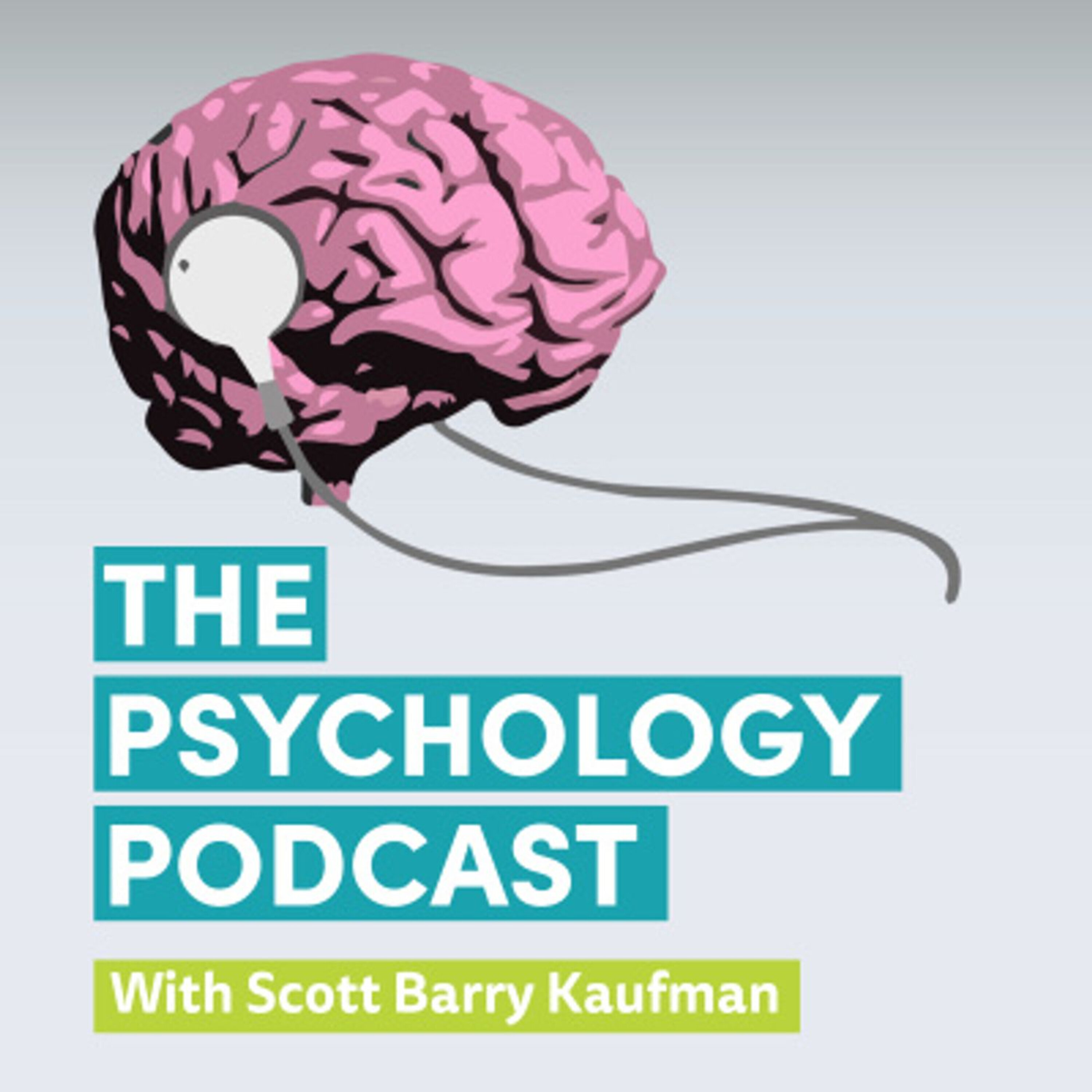
Brad Stulberg || Finding Groundedness
Today we have Brad Stulberg on the podcast. Brad is an internationally known expert on human performance, well-being, and sustainable success. He’s co-author of the bestselling Peak Performance and The Passion Paradox. His work has appeared in the New York Times, Wall Street Journal, Los Angeles Times, Wired, Forbes, and more. He’s a contributing editor to Outside Magazine. In his coaching practice, Brad works with executives and entrepreneurs on their performance and well-being and he regularly speaks to large organizations on these topics as well. His latest book is called The Practice of Groundedness: A Transformative Path to Success That Feeds−Not Crushes−Your Soul. Topics · The truth with a capital T · Brad’s coaching practice · The Practice of Groundedness · Benefits of exercise and movement · What is groundedness? · The right way to strive · The problem with hustle culture, optimization, and biohacking · Research findings about loneliness, alcoholism, and anxiety · Accepting where you are to get where you want to be · Difference between stillness and groundedness · Process mindset over results mindset Support this podcast: https://anchor.fm/the-psychology-podcast/supportSee omnystudio.com/listener for privacy information.
46:2702/09/2021
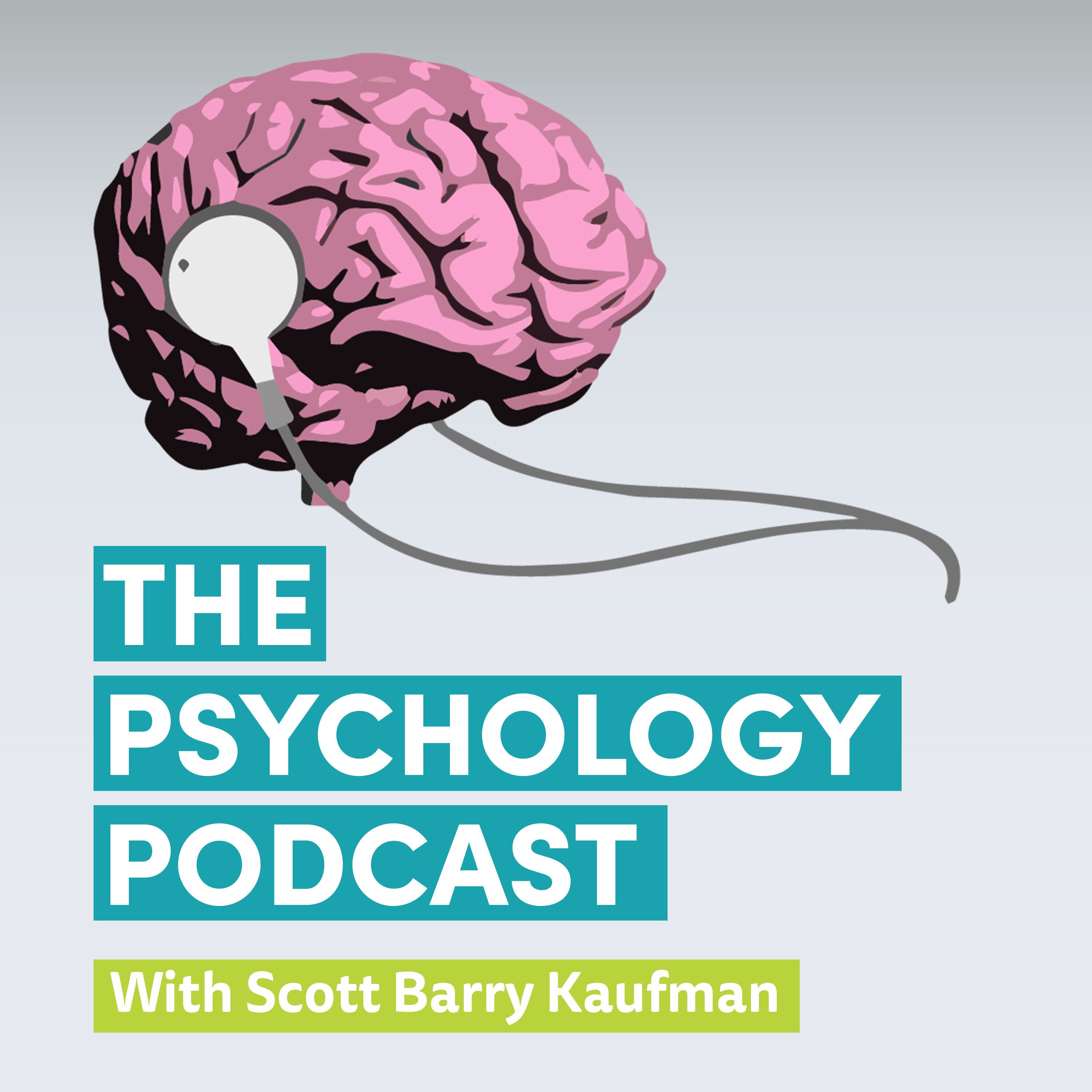
Irvin Yalom || Existential Psychotherapy
Today it’s great to have Irvin Yalom on the podcast. Yalom is emeritus professor of psychiatry at Stanford University’s School of Medicine and author of many internationally bestselling books including Love’s Executioner, The Gift of Therapy, Becoming Myself, and When Nietzsche Wept. He was the recipient of the 1974 Edward Strecker Award and the 1979 Foundations’ Fund Prize in Psychiatry. His textbooks Inpatient Group Psychotherapy and Existential Psychotherapy are classics and have influenced me personally, deeply. Dr. Yalom lives in Palo Alto, California. Topics · Dr. Yalom’s childhood and upbringing · Dr. Yalom’s interest in existential psychology · Group therapy and death anxiety · Rollo May’s influence on Dr. Yalom · Dr. Yalom’s books · Death anxiety and regret · Coping with his wife’s death · Meeting Viktor Frankl, Carl Rogers, and other legends in psychology · Last moments with Rollo May · A Matter of Death and Life with the Yaloms · Dr. Yalom’s advice to therapists · Overcoming the terror of death · Serene acceptance of death Support this podcast: https://anchor.fm/the-psychology-podcast/supportSee omnystudio.com/listener for privacy information.
50:4130/08/2021
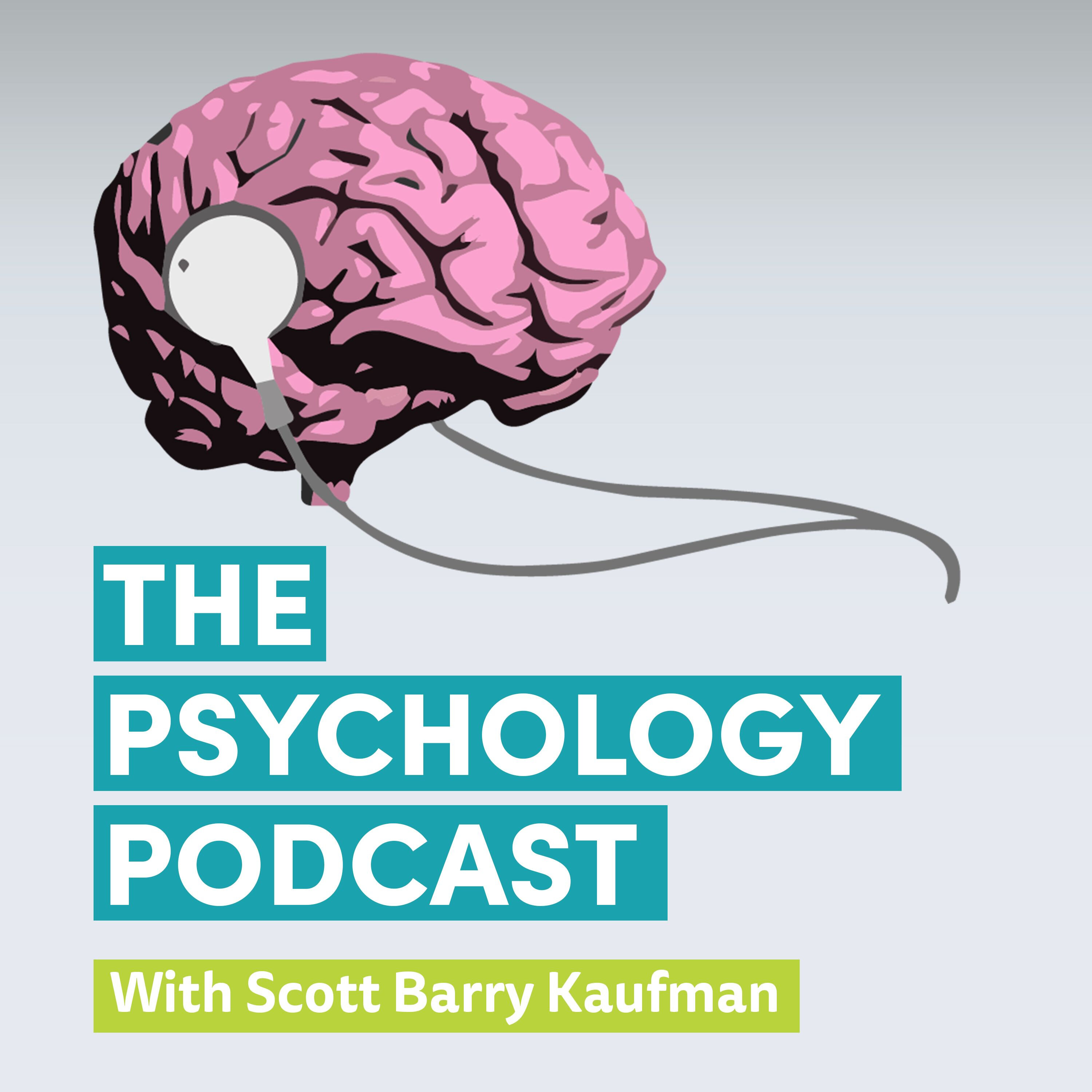
Heather McGhee || What Racism Costs Everyone and How We Can Prosper Together
Today we have Heather McGhee on the podcast. Heather is an expert in economic and social policy. The former president of the inequality-focused thinktank “Demos” McGhee has drafted a legislation testified before Congress and contributed regularly in news shows including MBC’s “Meet the Press”. She now chairs the board of “Color of Change”, the nation’s largest online racial justice organization. McGhee holds a BA in American Studies from Yale University and a JD from the University of California Berkeley School of Law. Her latest book is called “The Sum of Us: What Racism Costs Everyone and How We Can Prosper Together”. Topics · Disconnect between policy makers and working families · Heather’s hope for America · Zero-sum racial competition in White and Black People · The true definition of “White Privilege” · Racist policy-making in determining economic opportunity · How the Subprime Mortgage Crisis was fueled by racism · Heather meeting a white supremacist-turned-anti-racist advocate · “The Big Lie” in election results · Trump’s “Populist” Agenda · Black and White people on environmentalism · Systems in America as the biggest barrier in racial education Support this podcast: https://anchor.fm/the-psychology-podcast/supportSee omnystudio.com/listener for privacy information.
01:00:0426/08/2021
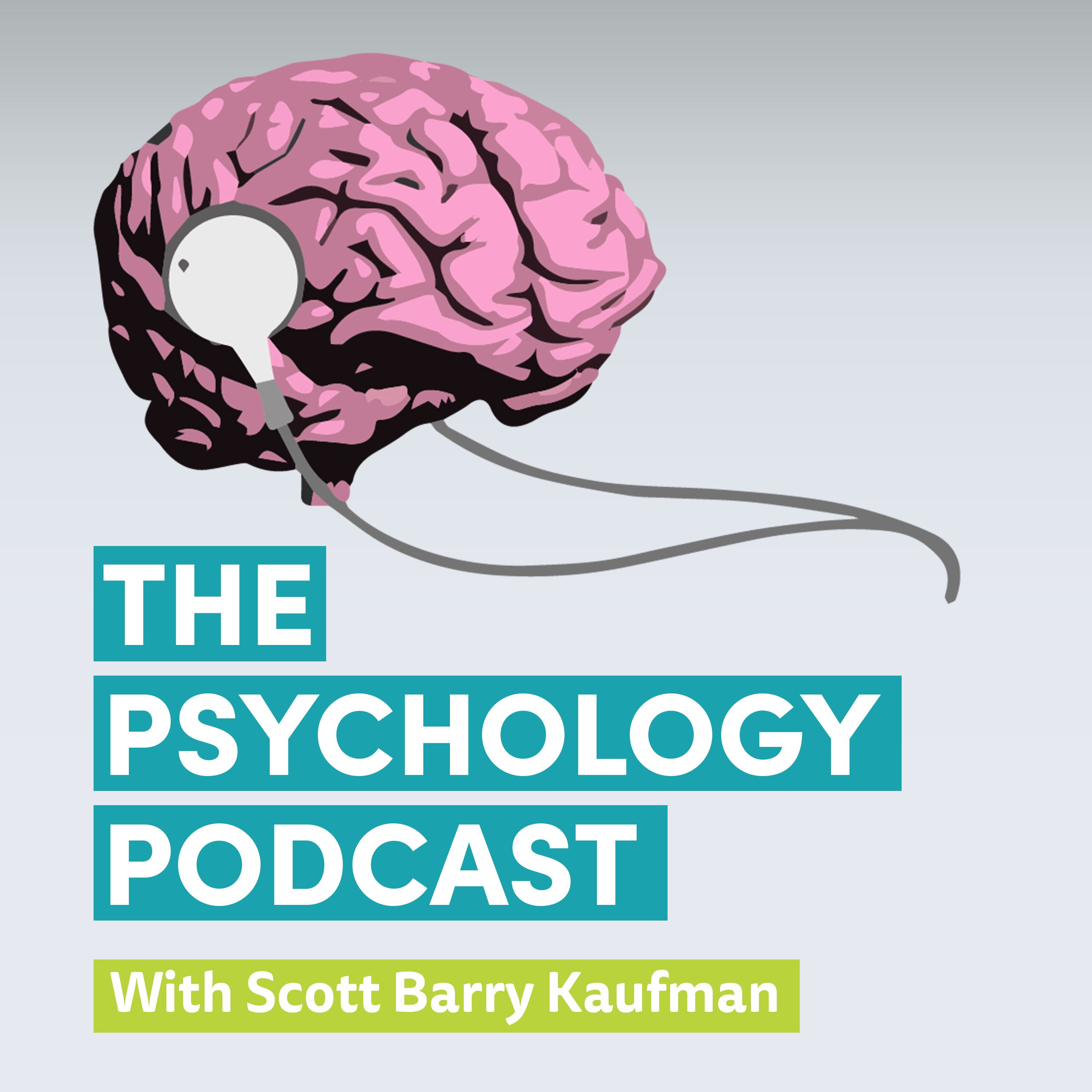
Gary Heil || Choose Love, Not Fear in the Workplace
Today it’s great to have Gary Heil on the podcast. Gary is an author, educator, lawyer, consultant, and coach. He’s the co-founder for The Center for Innovative Leadership where he continues to advise leaders in a wide range of industries and cultural issues. And he has served in a number of public and private boards including Gymboree, Red Envelope, and Front Range Solutions. He presently serves as the chairman of the board of CellTech Metals. He’s the co-author of a number of bestselling books including Leadership and the Customer Revolution, One Size Fits All, Maslow on Management, The Leader’s New Clothes, Revisiting the Human Side of Enterprise, Douglas McGregor Revisited, and Choose Love Not Fear: How the Best Leaders Build Cultures of Engagement and Innovation that Unleash Human Potential. Topics· Build great teams with love not fear· Why aren’t we developing better leaders?· Organizations’ outdated motivation strategies· Culture homogenizes behavior· Leaders suffer from motivated blindness· The democratization of power· Millennial’s approach to leadership and organizations· Choosing love first before competence· Revisiting Douglas McGregor and Abraham Maslow· The Quiz You Cannot Fail· Ordinary people are capable of greatnessSupport this podcast: https://anchor.fm/the-psychology-podcast/supportSee omnystudio.com/listener for privacy information.
53:0123/08/2021

Jon Levy || The Art and Science of Cultivating Influence
Today it’s great to chat with Jon Levy on the podcast. Jon is a behavioral scientist best known for his work on influence, human connection, and decision making. Jon specializes in applying the latest research to transform the way companies approach marketing, sales, consumer engagement, and culture. His clients range from Fortune 500 brands like Microsoft, Google, AB InBev, and Samsung to startups. His latest book is called You’re Invited: The Art and Science of Cultivating Influence. Topics· Jon’s interest in influence and social networks· The Influencers Dinner· The influence of meaningful connections· What is trust and how does it work?· Giving a platform to the voiceless· How being generous can help you succeed· "Relationship hack: Use the vulnerability loop"· Connecting is not the same as networking· Stories from the Influencers Dinner· Jon’s personal metric of successSupport this podcast: https://anchor.fm/the-psychology-podcast/supportSee omnystudio.com/listener for privacy information.
45:0819/08/2021
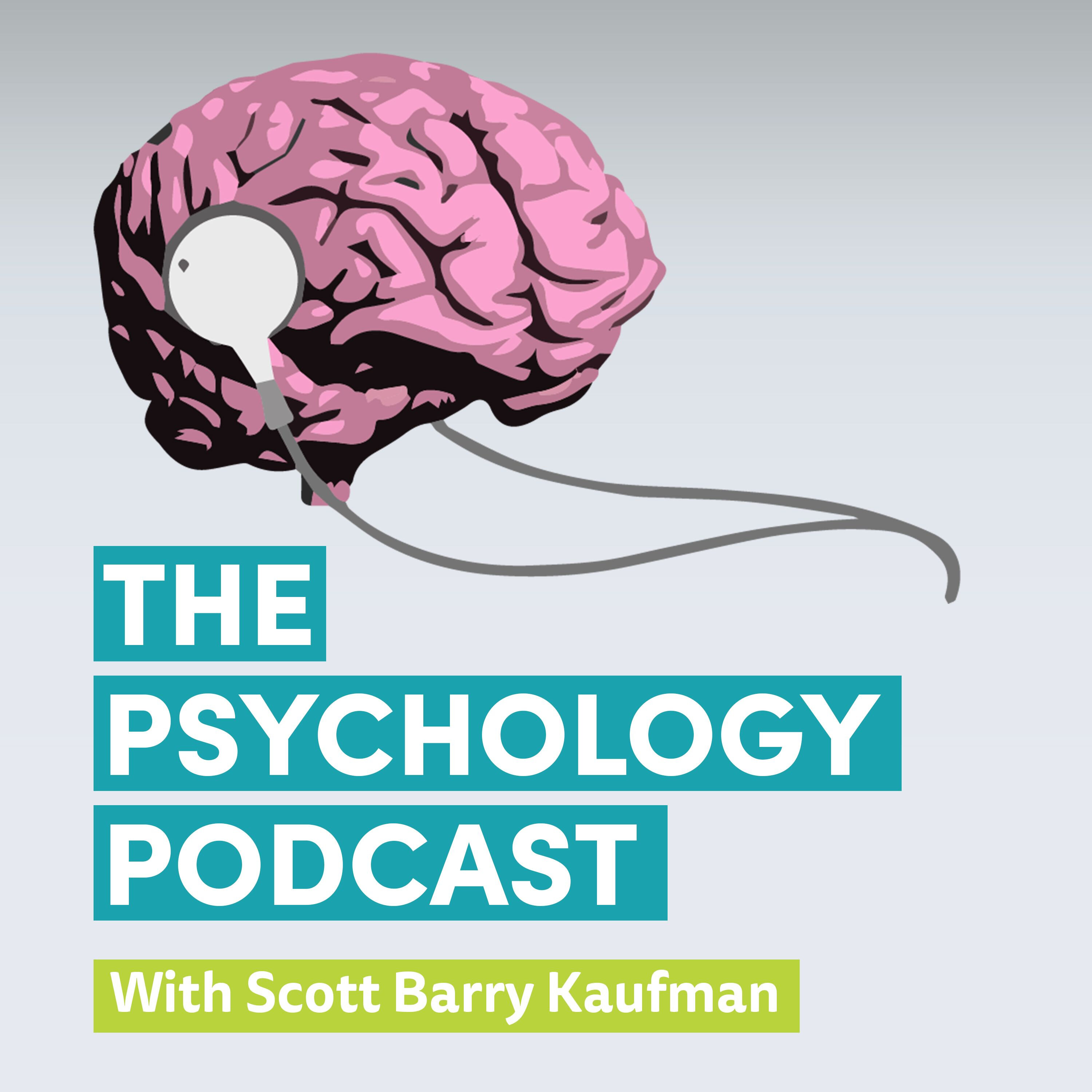
Gleb Tsipursky || Cognitive Bias in Relationships
Today it’s great to have Gleb Tsipursky on the podcast. Gleb is the CEO of Disaster Avoidance Experts where he consults, coaches, and trains leaders on decision making and risk management strategy. A cognitive neuroscientist and behavioral economist, Dr. Tsipursky has over 550 articles and 450 interviews in prominent venues such as Psychology Today, USA Today, Fast Company, CBS News, Time, and elsewhere. He’s also a bestselling author known for Never Go With Your Gut: How Pioneering Leaders Make the Best Decisions and Avoid Business Disasters. His new book is The Blind Spots Between Us: How to Overcome Unconscious Cognitive Bias & Build Better Relationships available at disasteravoidanceexperts.com/blindspots. He lives in Columbus, Ohio, and to avoid disaster in his personal life, he makes sure to spend ample time with his wife. Topics· Should you ever go with your gut?· Why our fight or flight response is a blind spot· Tribalism fuels disagreement in modern society· In-group and out-group bias· The halo and horn effect· Shame does not promote diversity and inclusion· The illusion of transparency· How to listen and communicate better· Expert intuition and empathy in relationships· When can we trust our intuition?· Strategies to improve mental fitnessSupport this podcast: https://anchor.fm/the-psychology-podcast/supportSee omnystudio.com/listener for privacy information.
50:3716/08/2021
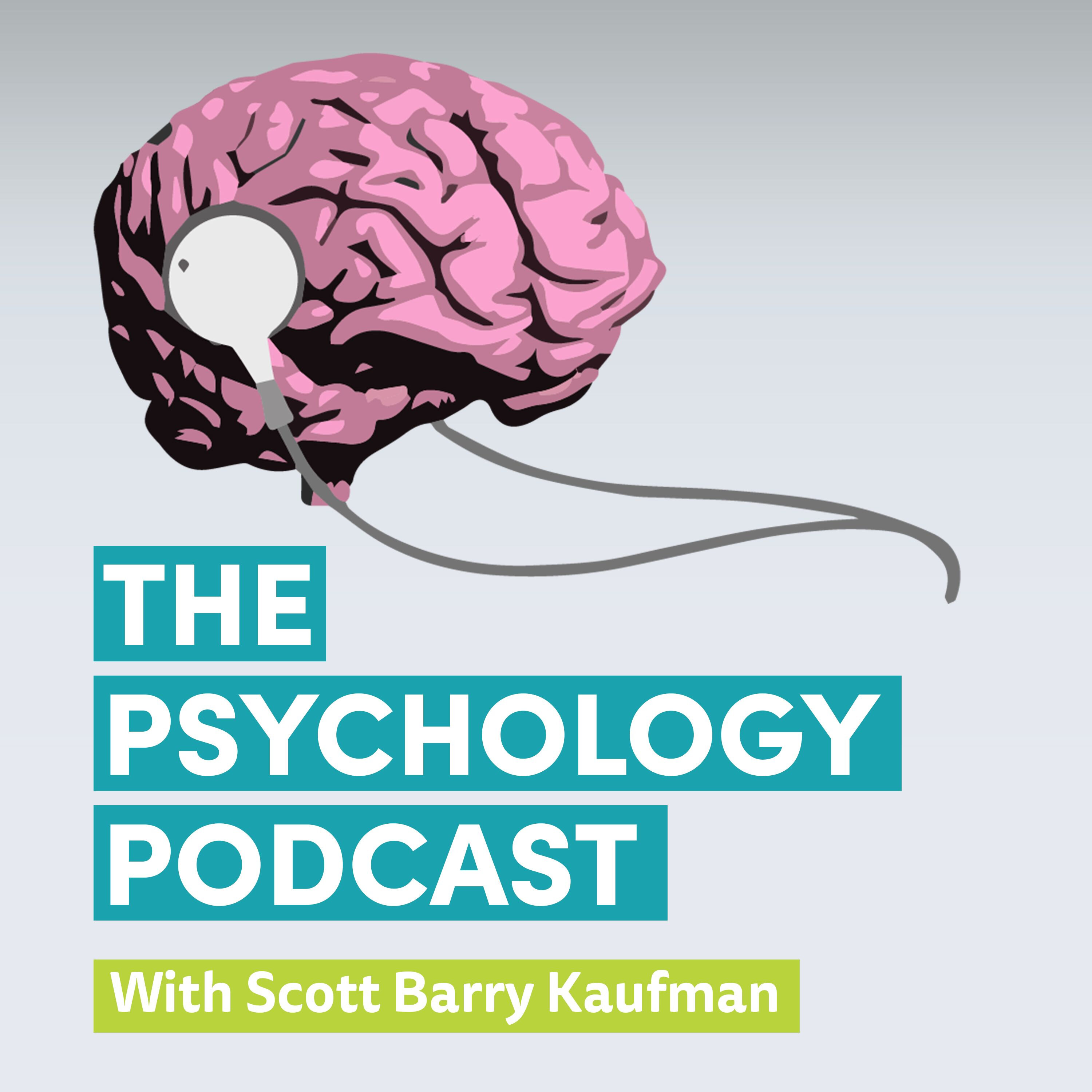
Michael Lewis || A Doctor Shares Life Lessons From His Experiences with Michael Jordan and Abraham Maslow
Today it’s great to have Michael Lewis on the podcast. Michael is an orthopedic surgeon at the Illinois Bone and Joint Institute. He’s been an orthopedic consultant to the Chicago White Sox baseball team and Chicago Wolves hockey team and the Chicago Bulls basketball team, with whom he earned two championship rings. Dr. Lewis has treated numerous world-class athletes from several continents including All-Star professional basketball and baseball players and Olympic medal winners. He’s the author of several books including a memoir entitled, The Ball’s in Your Court, where he shares life lessons from Michael Jordan, Phil Jackson, and none other than Abraham Maslow. Topics: · The Ball’s in Your Court · Michael’s childhood and upbringing · A life-changing epiphany with Abraham Maslow · Classroom experience of a Maslow lecture · How students reacted to Maslow’s ideas · From psychiatrist to orthopedic surgeon · Meeting the White Sox and Bill Veeck · Chicago Bulls and The Last Dance · Game-changing medical decisions · Anecdotes with Michael Jordan, Dennis Rodman, and Phil Jackson · Remembering Brian Williams · Seeing More Colors and Michael’s other books Support this podcast: https://anchor.fm/the-psychology-podcast/supportSee omnystudio.com/listener for privacy information.
01:08:4012/08/2021

Colin DeYoung || Rethinking Mental Illness
Today it’s great to have Colin DeYoung on the podcast. Dr. DeYoung is a professor in the psychology department at the University of Minnesota and the director of the Personality, Individual Differences and Behavioral Genetics program. He researches the structures and sources of psychological traits using neuroscience methods to investigate their biological substrates. He developed a general theory of personality: Cybernetic Big Five Theory which identifies psychological functions associated with major personality traits as well as their connection to other elements of personality and various life outcomes including mental illness. Topics · Definitions of mental illness · The problem with DSM-5’s diagnostic categories · The Hierarchical Taxonomy of Psychopathology (HiTOP) · What is cybernetics? · A Cybernetic Theory of Psychopathology · How Colin’s theory differs from abnormal psychology · Differences between mental disorder and psychopathology · Characteristic adaptations and personality traits · Moving towards a dimensional model of psychopathology · What qualifies as cybernetic dysfunction? · Narcissism, anti-social behavior, and successful psychopaths · Legal interventions for risky profiles without stigmatization · The need for non-pharmacological interventions Support this podcast: https://anchor.fm/the-psychology-podcast/supportSee omnystudio.com/listener for privacy information.
01:14:1609/08/2021
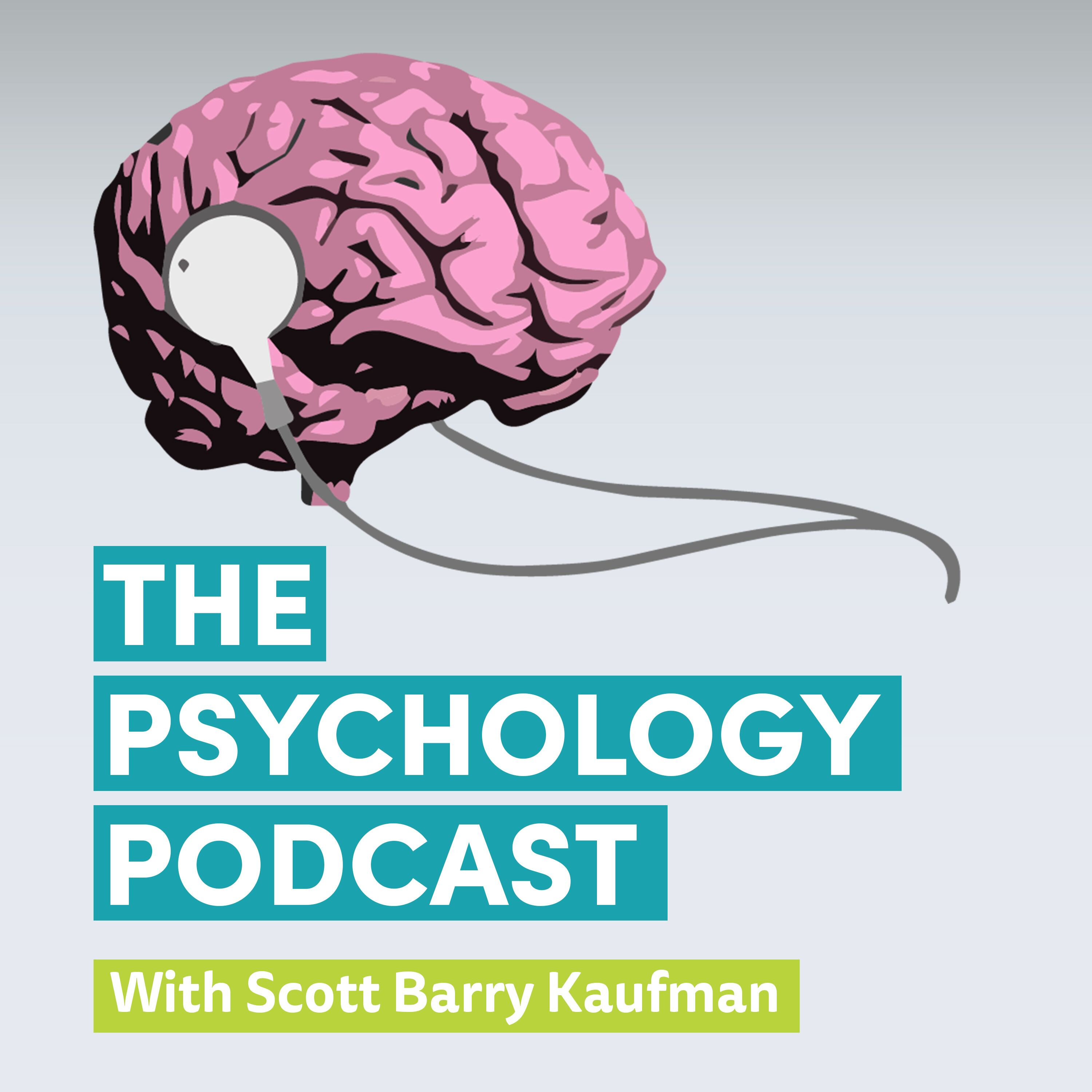
Jordan Peterson || Chatting About Human Nature
Today’s episode includes a conversation between Dr. Jordan B Peterson and Dr. Scott Barry Kaufman. Dr. Peterson is professor of psychology at the University of Toronto, a clinical psychologist, and the author of the bestsellers 12 Rules for Life: An Antidote to Chaos and Beyond Order: 12 More Rules for Life. Note that this episode originally appeared on the Jordan B Peterson Podcast on June 17, 2021. Topics · Combining cognitive science with the humanistic psychology tradition · Scott’s experience studying IQ and intelligence · The link between openness to experience and mystical experiences · Scott discusses his book Transcend · Self-actualization and The Big Five personality traits · Does increased aggression lead to stable human societal hierarchies? · Jordan and Scott discuss mating patterns among humans · Sex differences towards abuse of power · Mentorship and transcendence · The transition from naivety to cynicism to courage Support this podcast: https://anchor.fm/the-psychology-podcast/supportSee omnystudio.com/listener for privacy information.
02:00:0105/08/2021

Paul Wong || Existential Positive Psychology
Today it’s a great honor to chat with the legendary Paul Wong on the podcast. Dr. Wong is Professor Emeritus of Trent University. He’s a fellow of APA and CPA and president of the International Network on Personal Meaning and the Meaning-Centered Counselling Institute Inc. Editor of the International Journal of Existential Positive Psychology, he’s also edited two influential volumes on The Human Quest for Meaning. A prolific writer, he is one of the most cited existential and positive psychologists. The originator of Meaning Therapy and International Meaning Conferences, he has been invited to give keynotes and meaning therapy workshops worldwide. Dr. Wong is the recipient of the Carl Rogers Award from the Society for Humanistic Psychology. Topics: · Dr. Wong’s childhood and upbringing · Animal learning research: optimism vs. helplessness · Locus of control is not a dichotomy · The unheard cry of a successful Asian psychologist · Positive Psychology 2.0 · Embracing the dark side to enhance well-being · Dual-systems model of what makes life worth living · Agency, spirituality, and community contribute meaning · How to find meaning in life Support this podcast: https://anchor.fm/the-psychology-podcast/supportSee omnystudio.com/listener for privacy information.
57:1302/08/2021
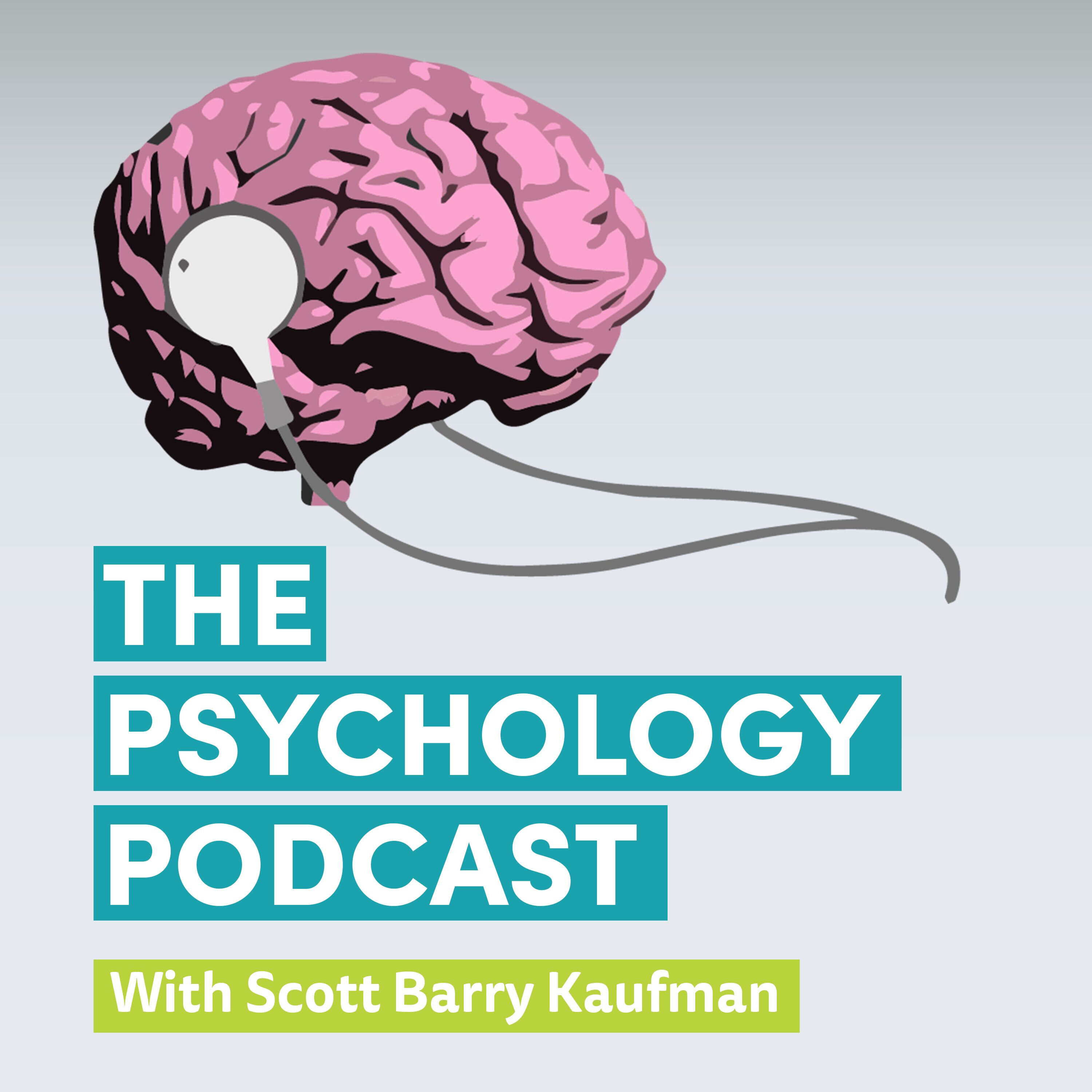
Kristin Neff || Fierce Self-Compassion
Today it’s great to chat with Kristin Neff on the podcast. Kristin is currently an associate professor of educational psychology at the University of Texas at Austin. She’s a pioneer in the field of self-compassion research, conducting the first empirical studies on self-compassion almost 20 years ago. In addition to writing numerous academic articles and book chapters on the topic, she’s the author of the book, Self-Compassion: The Proven Power of Being Kind to Yourself. In conjunction with her colleague Dr. Chris Germer, she has developed an empirically supported training program called Mindful Self-Compassion which is taught by thousands of teachers worldwide. They co-authored The Mindful Self-Compassion Workbook and Teaching the Mindful Self-Compassion Program: A Guide for Professionals. Her newest work focuses on how to balance self-acceptance with the courage to make needed change. Her latest book is called Fierce Self-Compassion: How Women can Harness Kindness to Speak Up, Claim Their Power, and Thrive. Topics: · What is fierce self-compassion? · Integration of fierce and tender self-compassion · How gender socialization interferes with self-compassion · Why women tend to have less self-compassion than men · Patriarchy vs matriarchy: differences in socialization and values · Breaking gender stereotypes incurs criticism · Can self-compassion turn into selfishness? · The psychometrics of self-compassion and self-coldness · Using common humanity for unity, not division · Harnessing anger with a quiet ego · Self-compassion: the dance of acceptance and change · Correlation of self-compassion with the light and dark triads of personality Support this podcast: https://anchor.fm/the-psychology-podcast/supportSee omnystudio.com/listener for privacy information.
57:2229/07/2021
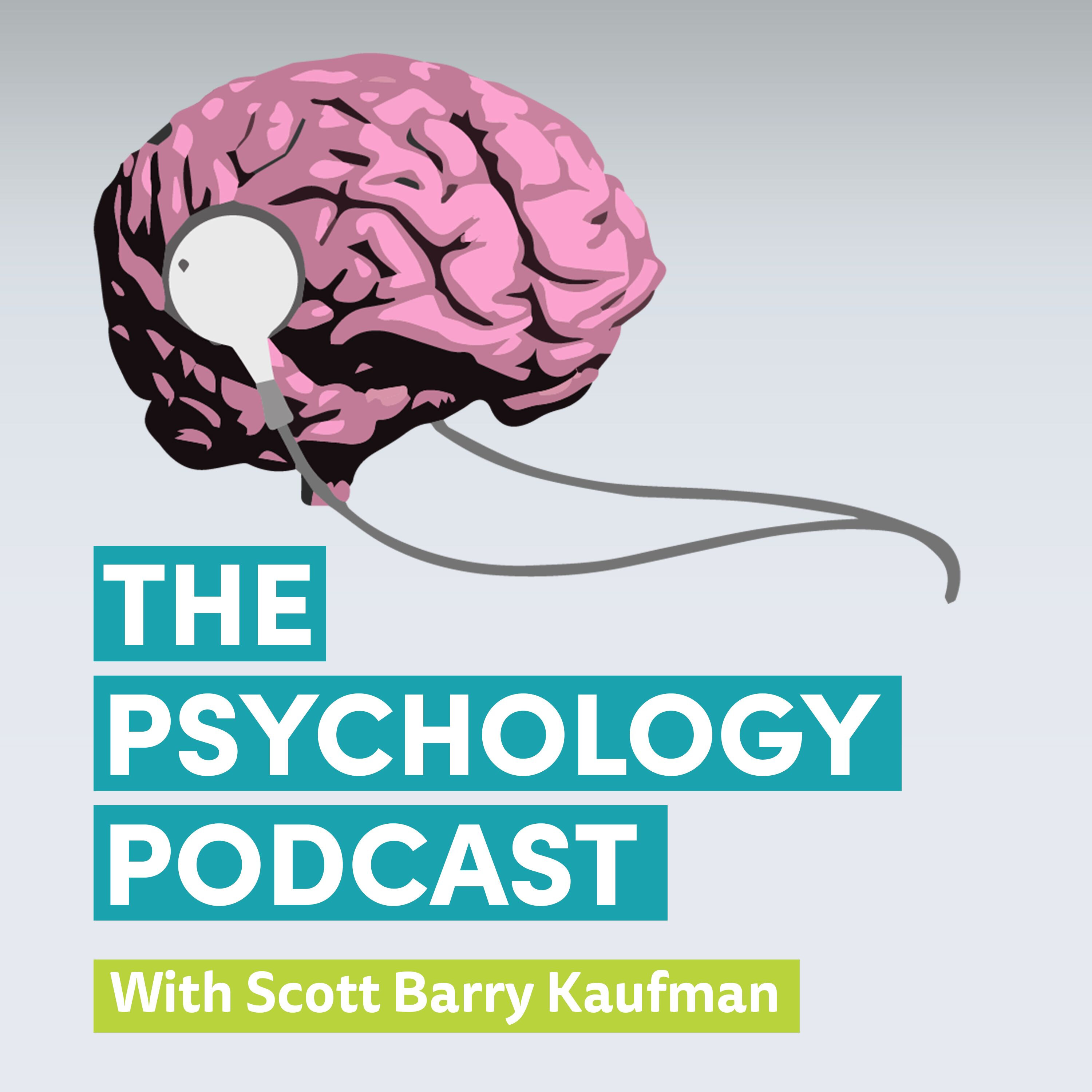
Daniel Goleman || Mindfulness and Emotional Intelligence
Today it’s great to chat with Daniel Goleman on the podcast. Daniel is an internationally known psychologist who lectures frequently to professional groups, business audiences, and college campuses. As a science journalist, Goleman reported on the brain behavioral sciences for the New York Times for many years. His 1995 book Emotional Intelligence was on the New York Times bestseller list for a year and a half with more than five million copies in print worldwide in 40 languages and has been a bestseller in many countries. Apart from his books on emotional intelligence, Goleman has written books on topics including self-deception, creativity, transparency, meditation, social-emotional learning, ecoliteracy, and the ecological crisis. Topics: · Daniel’s current research · Does IQ outweigh emotional intelligence? · Competency modeling for emotional intelligence · Correlation between general intelligence and social-emotional intelligence · Cognitive control and social-emotional learning · Daniel’s interest in meditation · Are certain personalities more attracted to mindfulness? · How mindfulness training can affect neuroplasticity and creativity · The Tibetan model of mindfulness · Meditation apps and their effectivity · Is there a link between meditation and emotional intelligence? · The future of mindfulness training methods · First Person Plural Podcast: EI & Beyond · Radical transparency during the ecological crisis · Daniel’s definition of intelligence Support this podcast: https://anchor.fm/the-psychology-podcast/supportSee omnystudio.com/listener for privacy information.
53:3426/07/2021
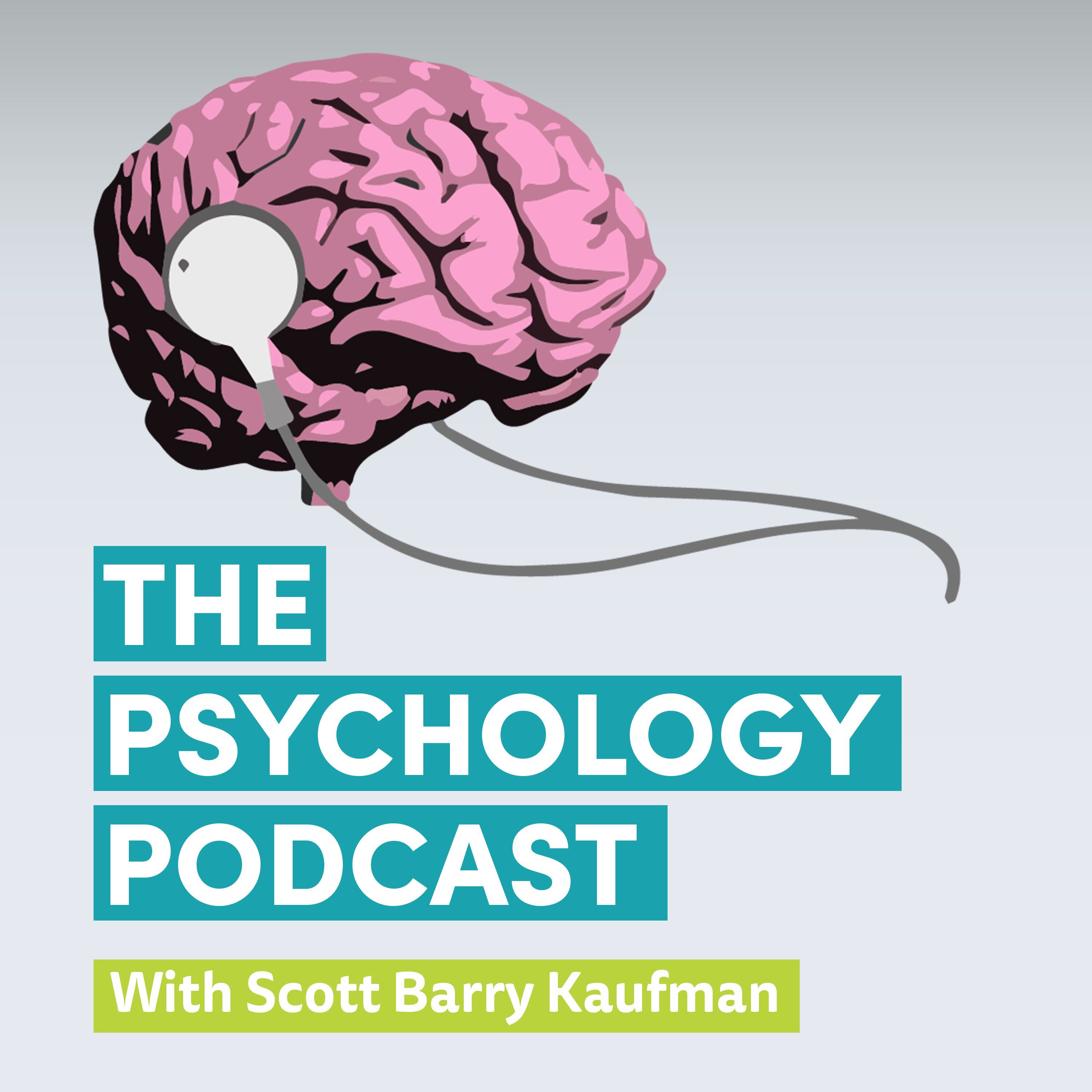
Dean Simonton || The Science of Genius
Today it’s great to have Dean Keith Simonton on the podcast. Dean is distinguished professor emeritus of psychology at the University of California Davis. His well over 500 single author publications focus on topics such as genius, creativity, aesthetics, and leadership. In 2018, MIT Press published his book The Genius Checklist but he has also published many other books on these various topics of genius, leadership, and aesthetics. I just want to personally say his book, Greatness: Who Makes History and Why, is one of the major books that inspired me to go into the field that I’m in today. Topics: · Dean’s interest in genius, creativity, and leadership · The historiometic approach · Child prodigies and the savant syndrome · Dean’s schooling years · Can late bloomers become geniuses? · Fame and creativity in the age of social media · Using the equal odds rule to create a masterpiece · Grit and openness to experience predict genius · Dean’s solo publications and collaborations · Re-analysis of Cox’s data on geniuses · The IQs of Mozart, Cervantes, and Shakespeare · Scientific genius vs. artistic genius · The mad-genius paradox · US Presidents’ IQ scores and leadership · Variability and the role of talent in mastery Support this podcast: https://anchor.fm/the-psychology-podcast/supportSee omnystudio.com/listener for privacy information.
01:40:1922/07/2021

Robert Sternberg || Adaptive Intelligence
Today it’s great to have Robert Sternberg on the podcast. Robert is a psychology professor at Cornell University. Among his major contributions to psychology are the triarchic theory of intelligence and several influential theories relating to creativity, thinking styles, love, and hate. A Review of General Psychology survey ranked Sternberg as the 60th most cited psychologist of the 20th century. He’s authored and co-authored over 1,500 publications including articles, book chapters, and books. Topics · Robert’s childhood experience with IQ tests · Robert’s passion for psychometrics · Development of the Triarchic Theory of Intelligence · How the Triarchic Theory of Intelligence relates to Gardner’s Theory of Multiple Intelligences · The world’s fixation on general intelligence · How society and the environment create correlations with intelligence · Expanding college admissions’ metrics of intelligence · Is psychological testing still valuable today? · Real world problems VS academic problems · Rethinking adaptive intelligence as a species · Application of intelligence to transcend hate Support this podcast: https://anchor.fm/the-psychology-podcast/supportSee omnystudio.com/listener for privacy information.
01:01:3619/07/2021
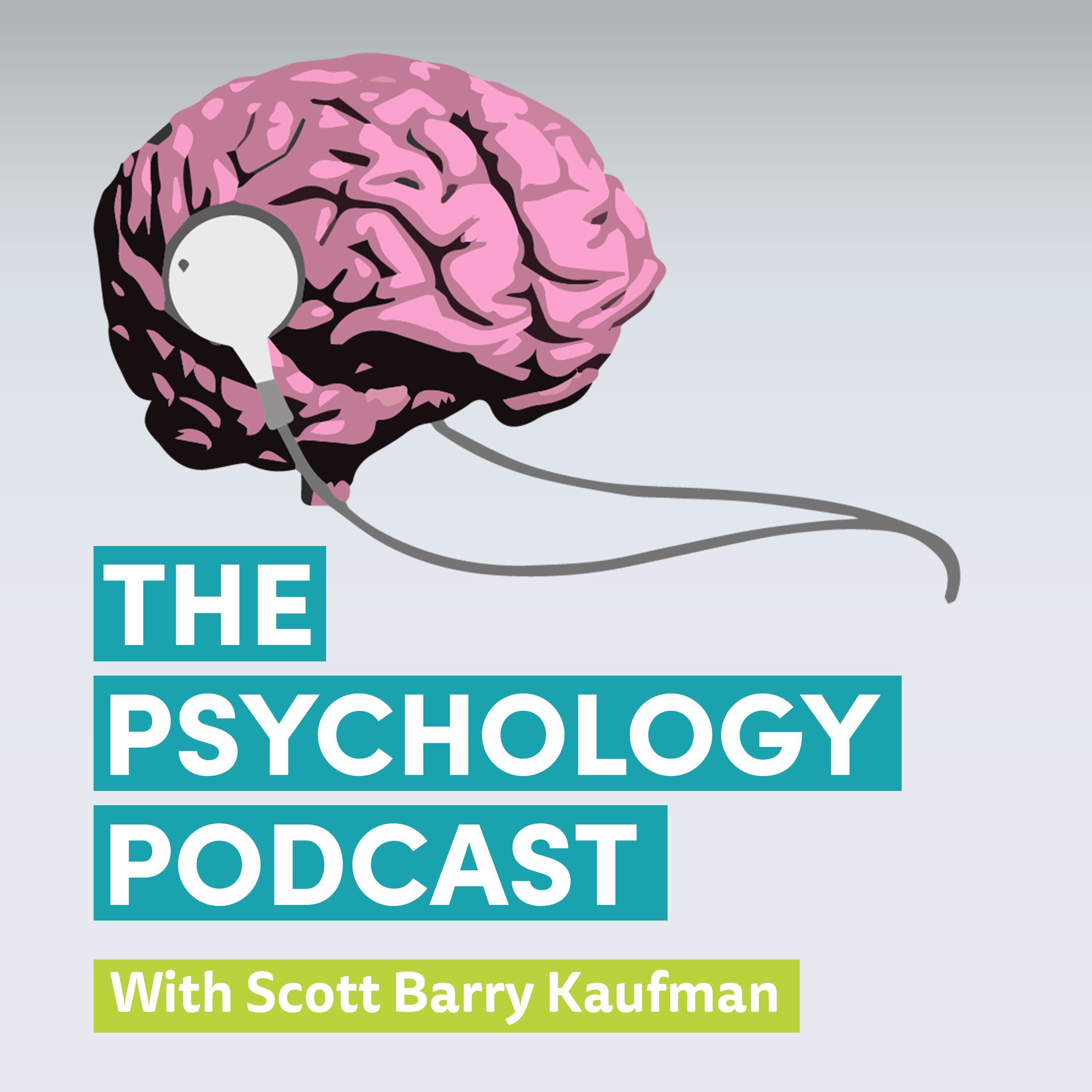
Andrew Huberman || Optimize Your Brain
Today it’s great to chat with Andrew Huberman on the podcast. Andrew is an associate professor of neurobiology and ophthalmology at Stanford. His lab is focused on brain function, development, and repair with emphasis on regeneration to prevent and cure blindness. He also studied the neural circuits that control visual fear and are developing tools to re-map them and to treat anxiety disorders. Additionally, Huberman is the host of the popular podcast called Huberman Lab. Topics · The Huberman Lab Podcast · Andrew’s interest in neurobiology and his current work · Emotions and the autonomic nervous system · How visual focus and respiration alters internal states · Spiegel eye roll hypnosis test · The amygdala as the dynamic link between internal and external cues · How to increase motivation · Chronotype management and the optimal routine · Flow state and further research Support this podcast: https://anchor.fm/the-psychology-podcast/supportSee omnystudio.com/listener for privacy information.
01:35:3715/07/2021
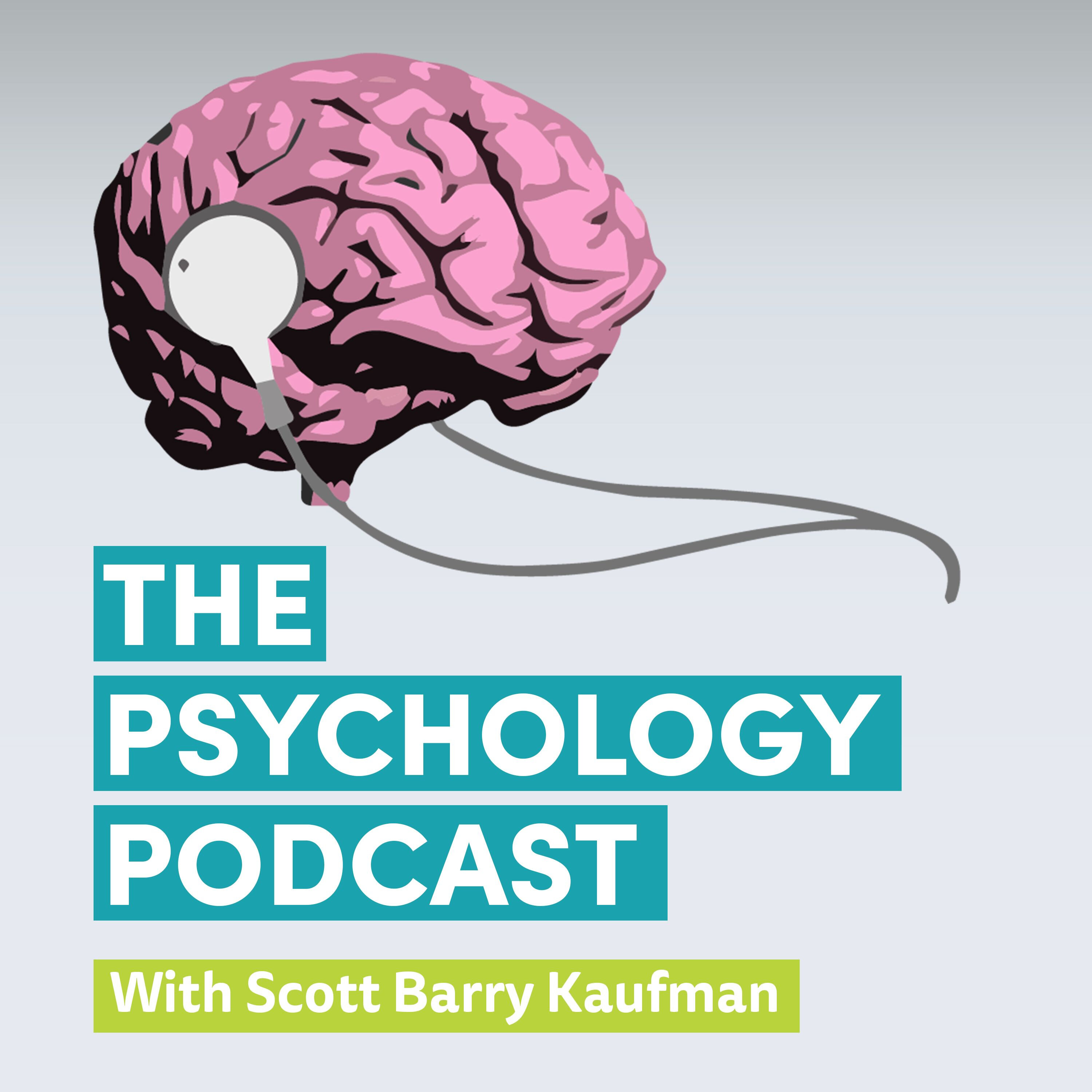
Lori Gottlieb and Guy Winch || Dear Therapists
Today it’s great to chat with Lori Gottlieb and Guy Winch on the podcast. Lori Gottlieb is a psychotherapist and New York Times bestselling author of Maybe You Should Talk to Someone, which has sold over a million copies and is currently being adapted as a television series. In addition to her clinical practice, she writes The Atlantic’s weekly “Dear Therapist” advice column and is co-host of the popular “Dear Therapists” podcast produced by Katie Couric. She contributes regularly to The New York Times and many other publications and in 2019, her TED Talk was one of the Top 10 Most-Watched of the Year. A member of the Advisory Council for Bring Change to Mind, she is a sought-after expert in media such as The Today Show, Good Morning America, CBS This Morning, CNN, and NPR’s “Fresh Air.” Learn more at LoriGottlieb.com or by following her on Twitter @LoriGottlieb1 and Instagram @lorigottlieb_author. Internationally renowned psychologist Guy Winch advocates for integrating the science of emotional health into our daily lives. His science-based self-help books have been translated into 27 languages and his three TED Talks have garnered over 25 million views. He writes Dear Guy for TED.com, the Squeaky Wheel Blog for PsychologyToday.com and is the co-host with Lori Gottlieb, of the Dear Therapists podcast from iHeartRadio. Learn more at guywinch.com. Topics · How Lori and Guy met · Lori and Guy’s Dear Therapists podcast · Lori and Guy’s eclectic approach to therapy · The benefits of tag-team therapy · Lori and Guy discuss loneliness · Why people share personal stories on social media · How mental health relates to ideological extremism · The importance of self-compassion and curiosity Support this podcast: https://anchor.fm/the-psychology-podcast/supportSee omnystudio.com/listener for privacy information.
57:0208/07/2021
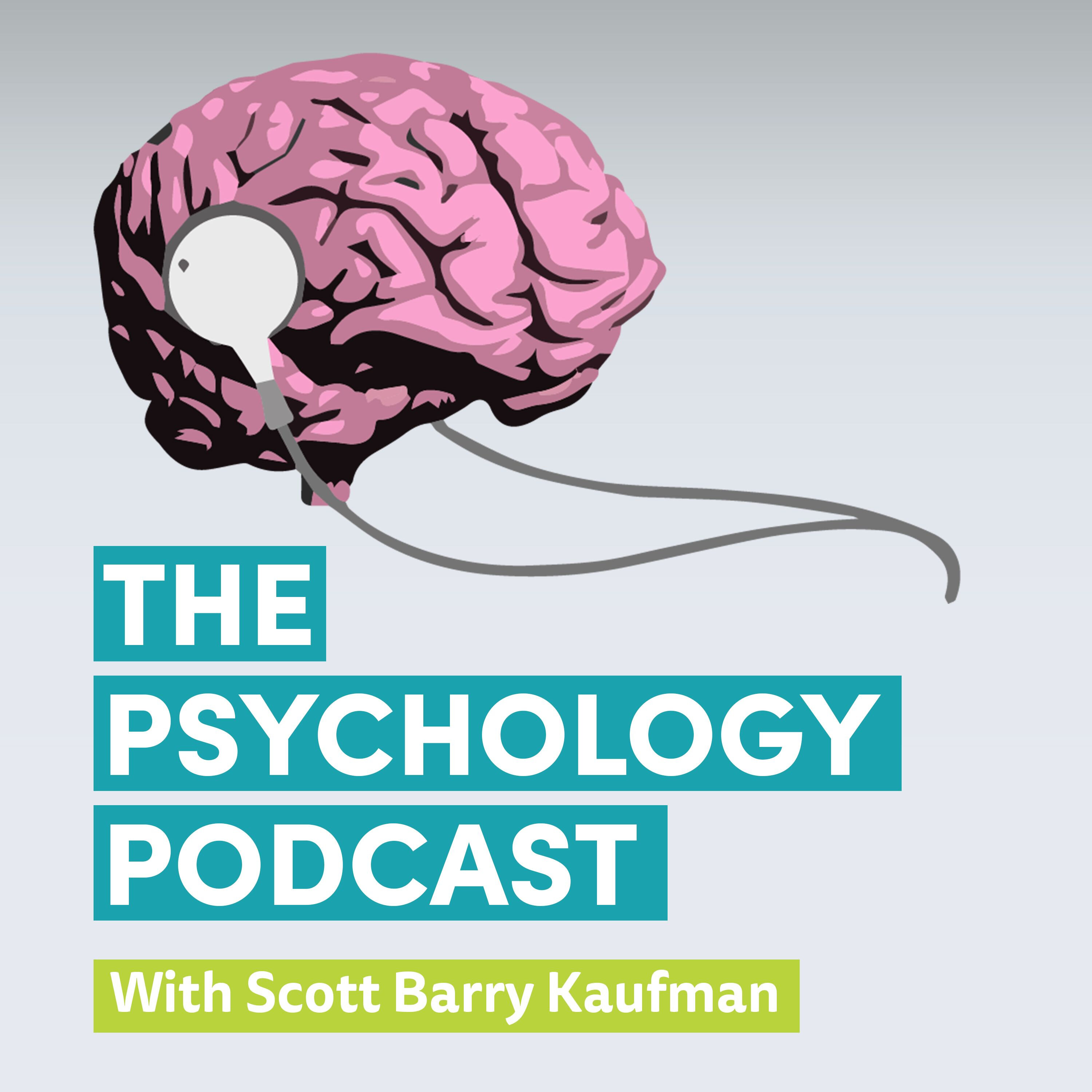
David Buss || The Evolution of Sexual Conflict
Today we have David Buss on the podcast. David is a professor of psychology at University of Texas, Austin, and is one of the founders of the field of evolutionary psychology. His primary research focus is on strategies of human mating, particularly the dark side of human mating nature, including conflict between the sexes, jealousy, stalking, intimate partner violence, and murder. David is author of a number of books on mating, including The Evolution of Desire and most recently, Why Men Behave Badly: The Hidden Roots of Sexual Deception, Harassment, and Assault. Topics · What is "mating"? · Why David became interested in evolutionary psychology · David's response to critics of evolutionary psychology · David and Scott discuss the replication crisis · How evolutionary psychology research can combat gender violence · What gave rise to the #MeToo movement? · "The bad boy paradox" · How dark triad traits manifest in women · David's thoughts on the "pickup artist" community · David and Scott discuss the "light triad" and positive evolutionary psychology Support this podcast: https://anchor.fm/the-psychology-podcast/supportSee omnystudio.com/listener for privacy information.
01:09:0005/07/2021
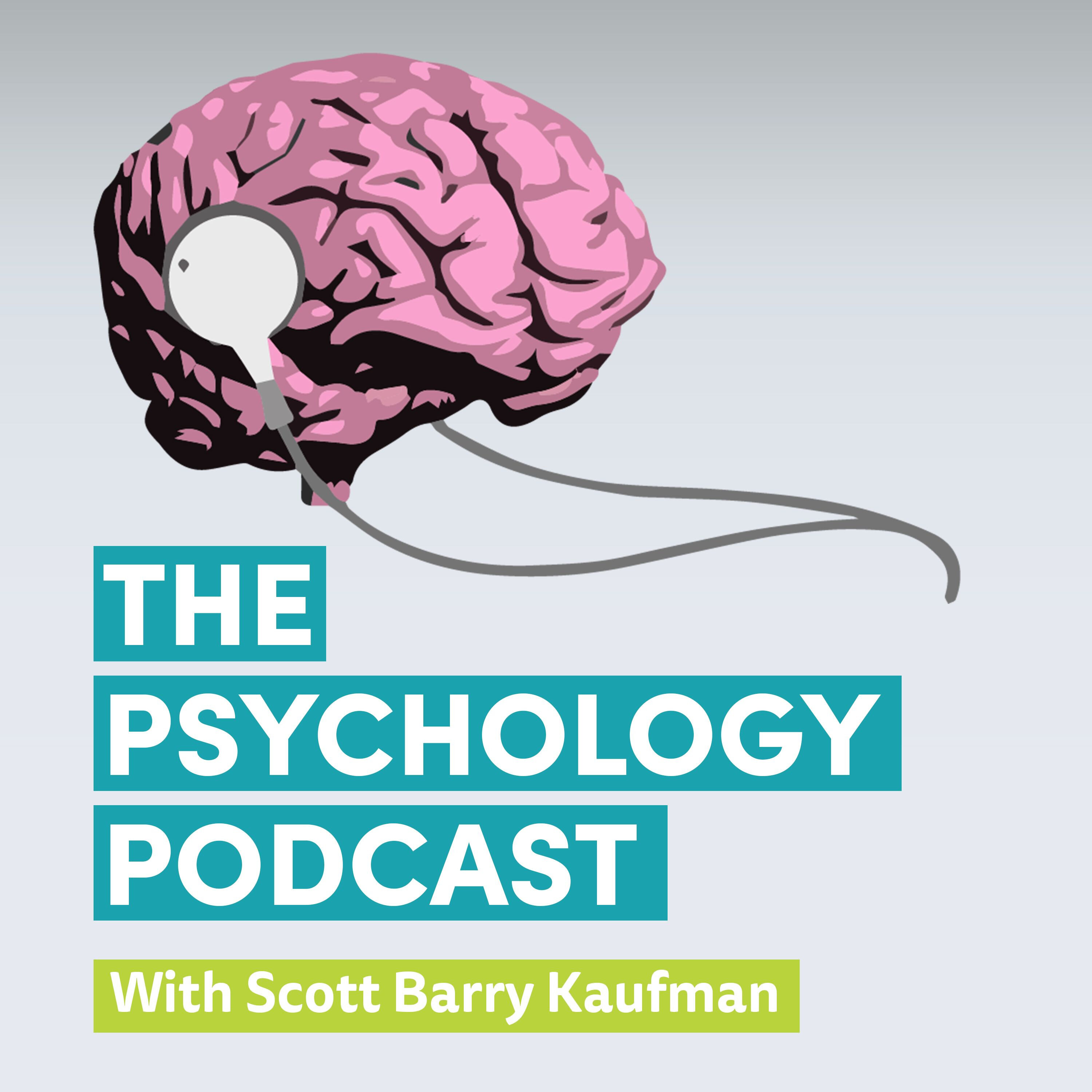
Robert Cialdini || The New Psychology of Persuasion
Today it’s great to chat with Dr. Robert Cialdini. Dr. Cialdini is the author of Influence and Pre-Suasion and is recognized as the foundational expert in the science of influence. His Principles of Persuasion have become a cornerstone for any organization serious about ethically and effectively increasing their influence. Dr. Cialdini has earned a global reputation for his ability to translate his scientific research into valuable and practical actions. He is a New York Times, Wall Street Journal, and USA Today bestselling author, with over seven million copies sold in 44 different languages. He is the president and CEO of INFLUENCE AT WORK. As a popular keynote speaker, he helps organizations in the US and abroad. Topics · Why Robert updated Influence: The Psychology of Persuasion · The “universal principles" of influence · How Robert became interested in the world of persuasion · How people react to figures of authority · The problem with the law of proportionality · How influence research has withstood the replication crisis · Unity as the seventh universal principle of influence · The impact of regionalism Support this podcast: https://anchor.fm/the-psychology-podcast/supportSee omnystudio.com/listener for privacy information.
45:4001/07/2021
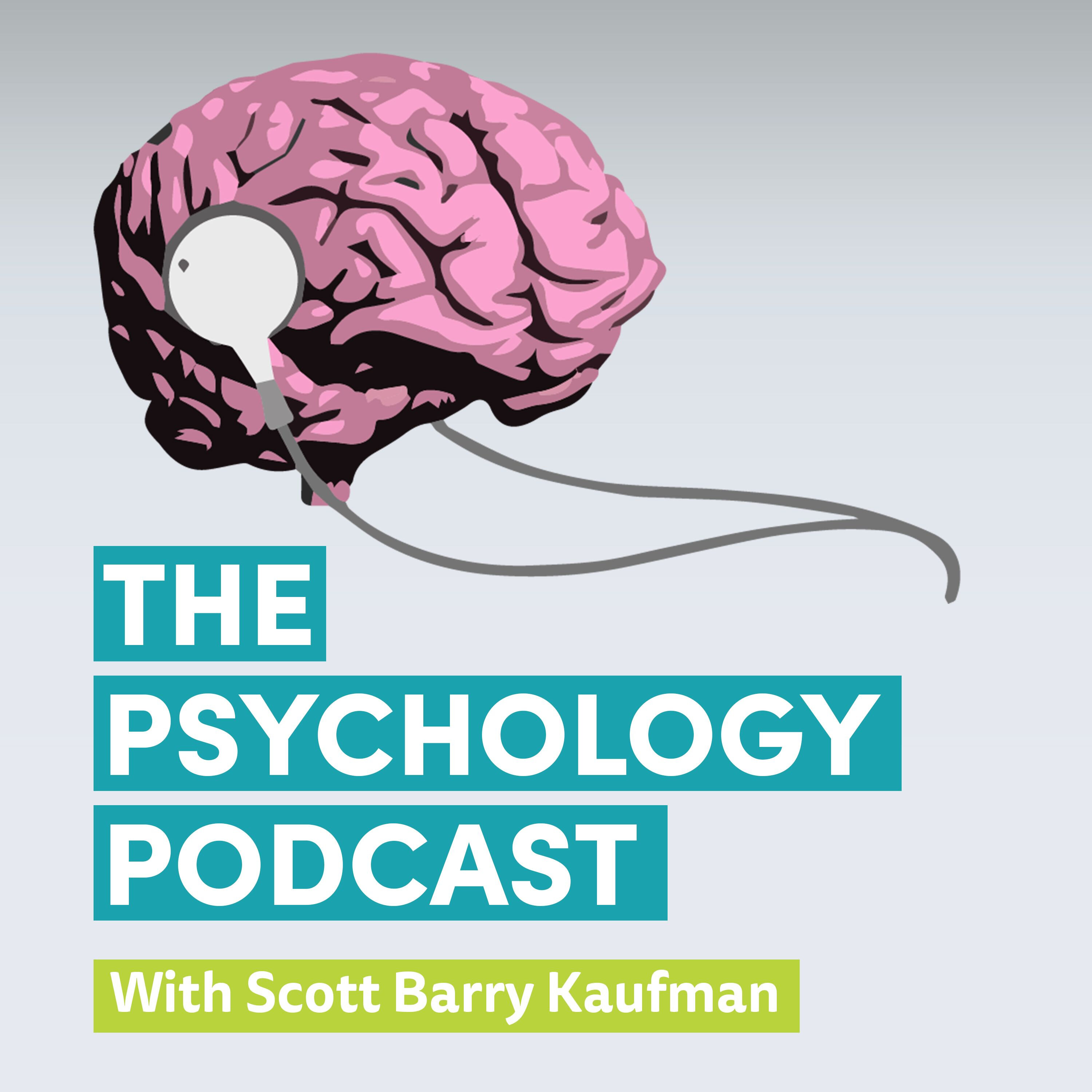
Amy Chan || Breakup Bootcamp
Today it’s great to chat with Amy Chan on the podcast. Amy is the Founder of Renew Breakup Bootcamp, a retreat that takes a scientific and spiritual approach to healing the heart. She is also the Editor-in-Chief of Heart Hackers Club - an online magazine that focuses on the psychology behind love, lust and desire. The Observer calls her "A relationship expert whose work is like that of a scientific Carrie Bradshaw" and her company has been featured across national media including Good Morning America, Vogue, Glamour, Nightline and the front page of The New York Times. Her book, Breakup Bootcamp - The Science of Rewiring Your Heart, was published by Harper Collins on December 1, 2020. Topics · How heartbreak can be a bridge to self-actualization · Understanding our relationship patterns · Love vs. familiarity · Amy’s Breakup Bootcamp · The stages of a breakup · Amy explains “love addiction” · The habit of over-giving · Feeling vs. feeding your emotions · How to alleviate excessive rumination · How we should define love Support this podcast: https://anchor.fm/the-psychology-podcast/supportSee omnystudio.com/listener for privacy information.
44:0728/06/2021
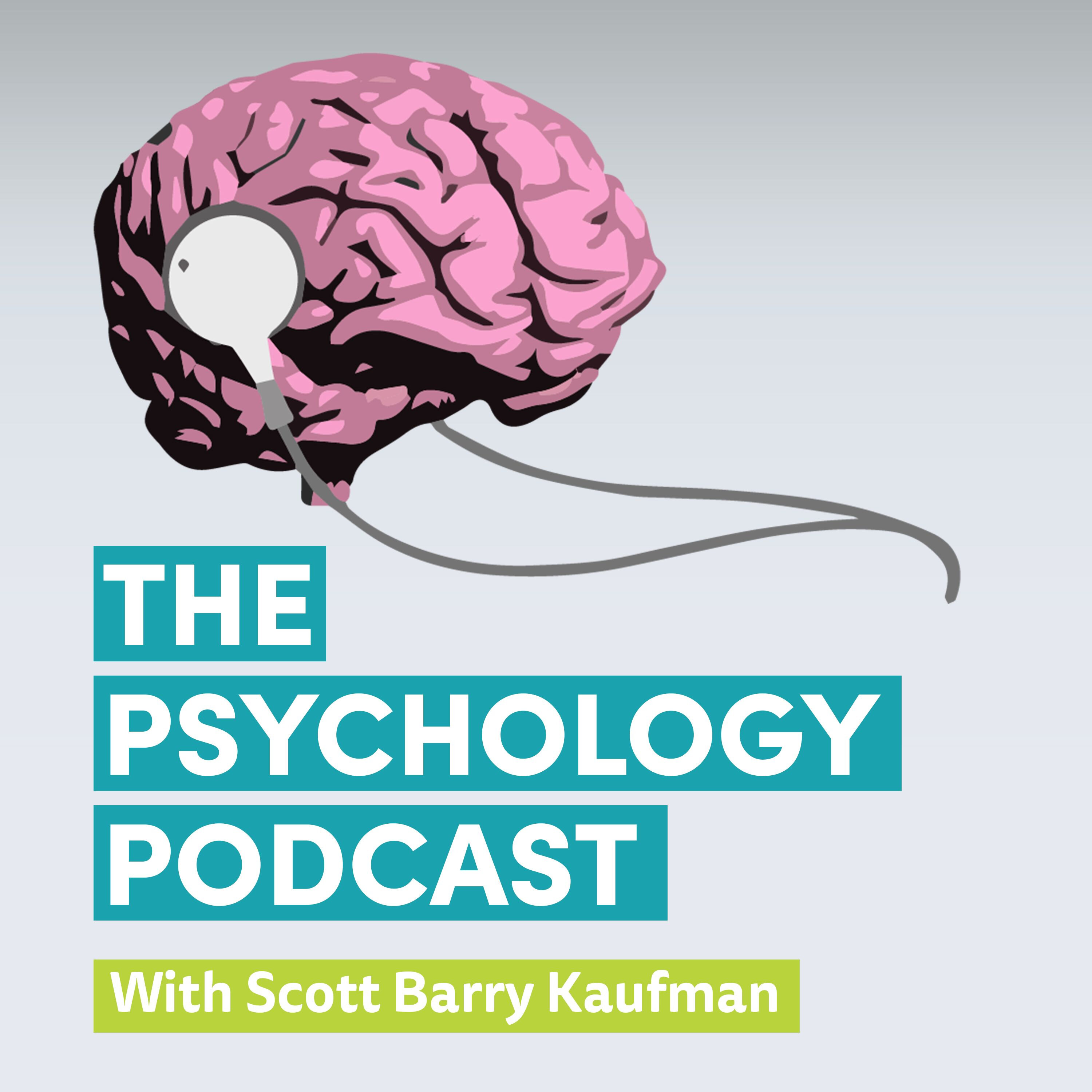
Loch Kelly || Living an Awakened Life
Today it’s great to chat with Loch Kelly on the podcast. Loch is an author, meditation teacher, psychotherapist, and founder of the non-profit, Open-Hearted Awareness Institute. Loch teaches in a non-sectarian human being lineage using an adult education style based in the earliest non-dual wisdom traditions, modern science and psychotherapy. Loch’s work is to help people access awakening as the next natural stage of human development. He offers in-person retreats, workshops, and online video and audio courses and he has served on the New York Insight Teachers Council. Topics · Loch’s spiritual journey · Loch discusses “awake awareness” · Absorbed vs. panoramic flow · Deliberate vs. effortless mindfulness · The neuroscience of meditation · How to tap into “pure being” · Mindfulness for individuals with ADD/ADHD · Loch discusses nondual theory · How Loch defines “identity” Support this podcast: https://anchor.fm/the-psychology-podcast/supportSee omnystudio.com/listener for privacy information.
01:06:4024/06/2021
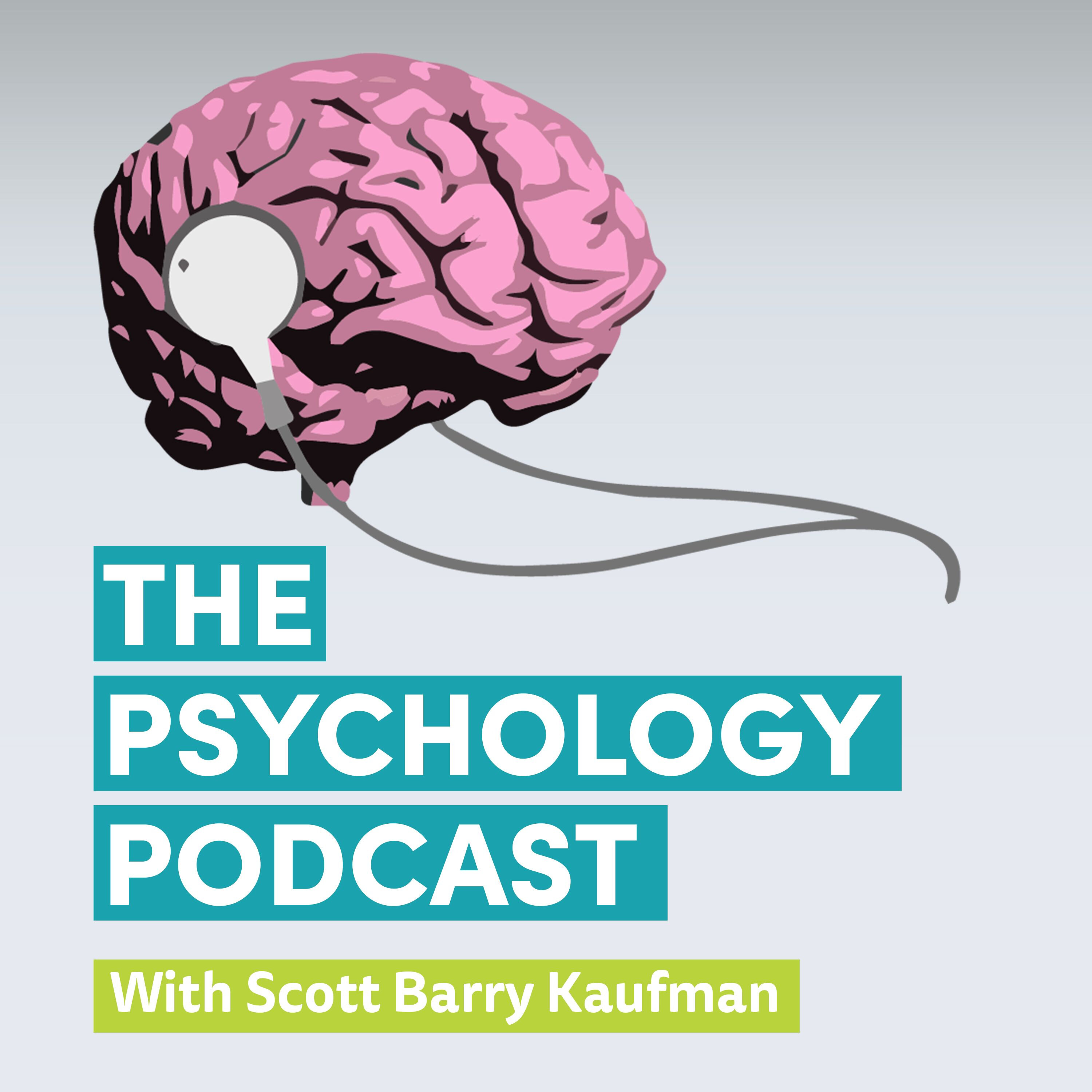
Annaka Harris || On the Mysteries of Consciousness
Today it’s great to have Annaka Harris on the podcast. Annaka is an author whose work touches on neuroscience, meditation, philosophy of mind, and consciousness. She is author of two books: Conscious: A Brief Guide to the Fundamental Mystery of the Mind and the children’s book I Wonder. Annaka is also a volunteer for InnerKids, teaching mindfulness meditation to children in schools. Topics · The hard problem of consciousness · Why Annaka wrote Conscious · Annaka discusses "panpsychism" · How to think more creatively about consciousness · The function of consciousness · The experience of agnosia · What consciousness has to do with free will · Consciousness from an evolutionary perspective · Annaka’s thoughts on the free will debate · Annaka’s goals in writing I Wonder Support this podcast: https://anchor.fm/the-psychology-podcast/supportSee omnystudio.com/listener for privacy information.
01:03:4521/06/2021

Tal Ben-Shahar || The Science of Happiness
Today it’s great to have Tal Ben Shahar on the podcast. Tal is a Best-Selling Author & Leadership Expert. He taught two of the largest classes in Harvard University’s history. Today, he consults and lectures around the world to executives in multinational corporations, the general public, and at-risk populations. The topics he lectures on include leadership, happiness, education, innovation, ethics, self-esteem, resilience, goal setting, and mindfulness. His books have been translated into more than twenty-five languages. Tal is the founder of Happiness Studies Academy, an online program that provides the knowledge and the tools to generate happiness for individuals and school communities. Topics · Tal’s former career as a squash player · How Tal ended up teaching happiness at Harvard · Tal’s definition of happiness · How deep learning affects our relationships · How happiness impacts creativity · Tal discusses various types of well-being · How different cultures define happiness · Is it possible to “achieve” happiness? · How Tal's approach to happiness can lift up disadvantaged populations · Why depression levels are skyrocketing · The impact of social media on happiness · Empathy vs. compassion Support this podcast: https://anchor.fm/the-psychology-podcast/supportSee omnystudio.com/listener for privacy information.
54:2317/06/2021

John McWhorter || Nasty Words
John McWhorter teaches linguistics, philosophy, and music history at Columbia University, and writes for various publications on language issues and race issues such as Time, the Wall Street Journal, the Daily Beast, CNN, and the Atlantic. He told his mother he wanted to be a "book writer" when he was five, and is happy that it worked out. Topics · Why John wrote a book on profanity · Why we call it “swearing” · Why people love the f-word · How profanity “lives in the right brain” · Why slurs sometimes become terms of affection · Why every culture has slurs · Why John thinks “the elect” is doing harm to society · How to balance contrasting perspectives on racism · John and Scott discuss the victim mentality · Discerning between fact and fiction in racial justice Support this podcast: https://anchor.fm/the-psychology-podcast/supportSee omnystudio.com/listener for privacy information.
56:0914/06/2021
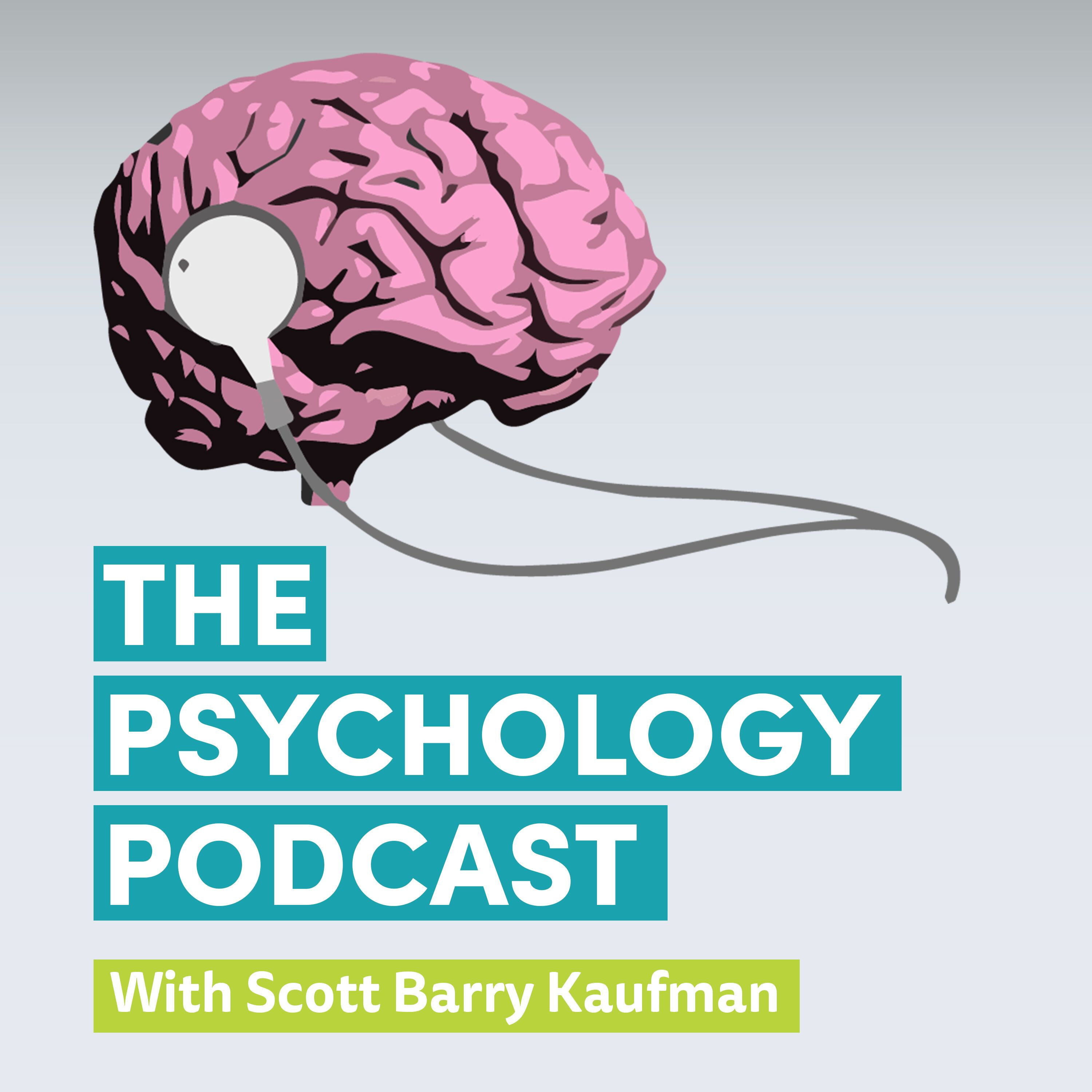
Judson Brewer || Unwinding Anxiety
Today it’s great to have Jud Brewer on the podcast. Dr. Brewer is a New York Times best-selling author, addiction psychiatrist and neuroscientist. He is an associate professor and the Director of Research and Innovation at the Center for Mindfulness at Brown University and the Executive Medical Director of Behavioral Health at Sharecare Inc. He has developed clinically proven app-based mindfulness trainings including those to help people with quitting smoking, emotional eating and anxiety. He is the author of The Craving Mind: from cigarettes to smartphones to love, why we get hooked and how we can break bad habits (New Haven: Yale University Press, 2017) and Unwinding Anxiety: New Science Shows How to Break the Cycles of Worry and Fear to Heal Your Mind (Avery/Penguin Random House, 2021). Topics · Why Jud practices mindfulness · How to break unhealthy habits and addictions · What “everyday addictions” are · Can addictions be reversed? · Why we prefer cake to broccoli · The shortcomings of willpower · Jud discusses discipline and changing behaviors · The role of anxiety in habit formation · The science of curiosity · Understanding our cravings · What anxiety sobriety is Support this podcast: https://anchor.fm/the-psychology-podcast/supportSee omnystudio.com/listener for privacy information.
48:4910/06/2021
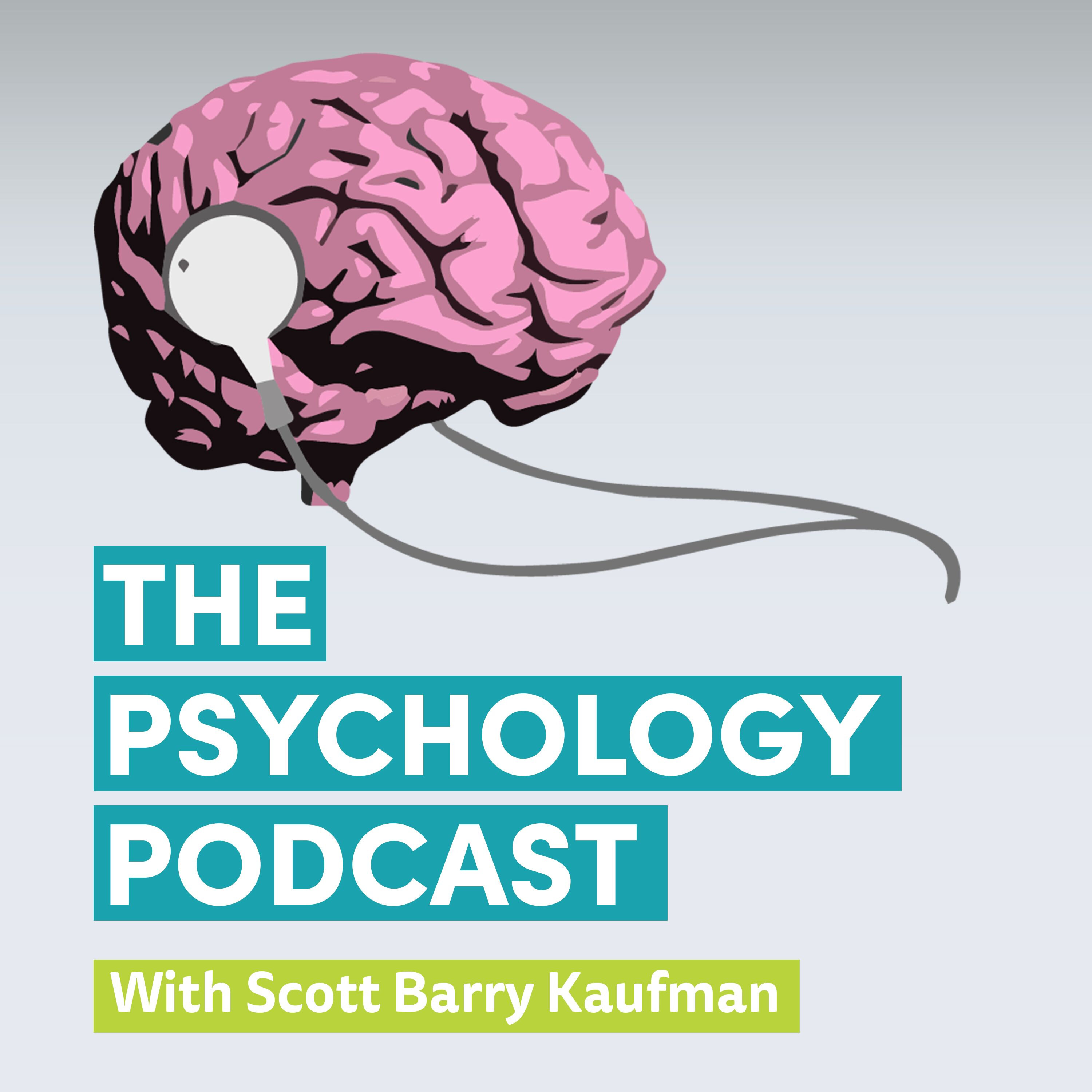
Arthur Brooks || Love Your Enemies
Today it’s great to chat with Arthur Brooks on the podcast. Arthur is the William Henry Bloomberg Professor of the Practice of Public Leadership at the Harvard Kennedy School and Professor of Management Practice at the Harvard Business School. Before joining the Harvard faculty in July of 2019, he served for ten years as president of the Washington, D.C.-based American Enterprise Institute (AEI), one of the world’s leading think tanks. Topics · Arthur’s relationship to music · Arthur’s experience with silent meditation retreats · Arthur’s unique spin on the science of happiness · The importance of suffering · Arthur’s conversation with the Dalai Lama · How to treat people like assets instead of liabilities · Being needed vs. objectifying oneself · How to cultivate dignity · The importance of having “useless” friends · Why fear is the opposite of love · The difference between empathy and compassion · How religion and spirituality impact human happiness · How creativity contributes to happiness Support this podcast: https://anchor.fm/the-psychology-podcast/supportSee omnystudio.com/listener for privacy information.
57:2207/06/2021
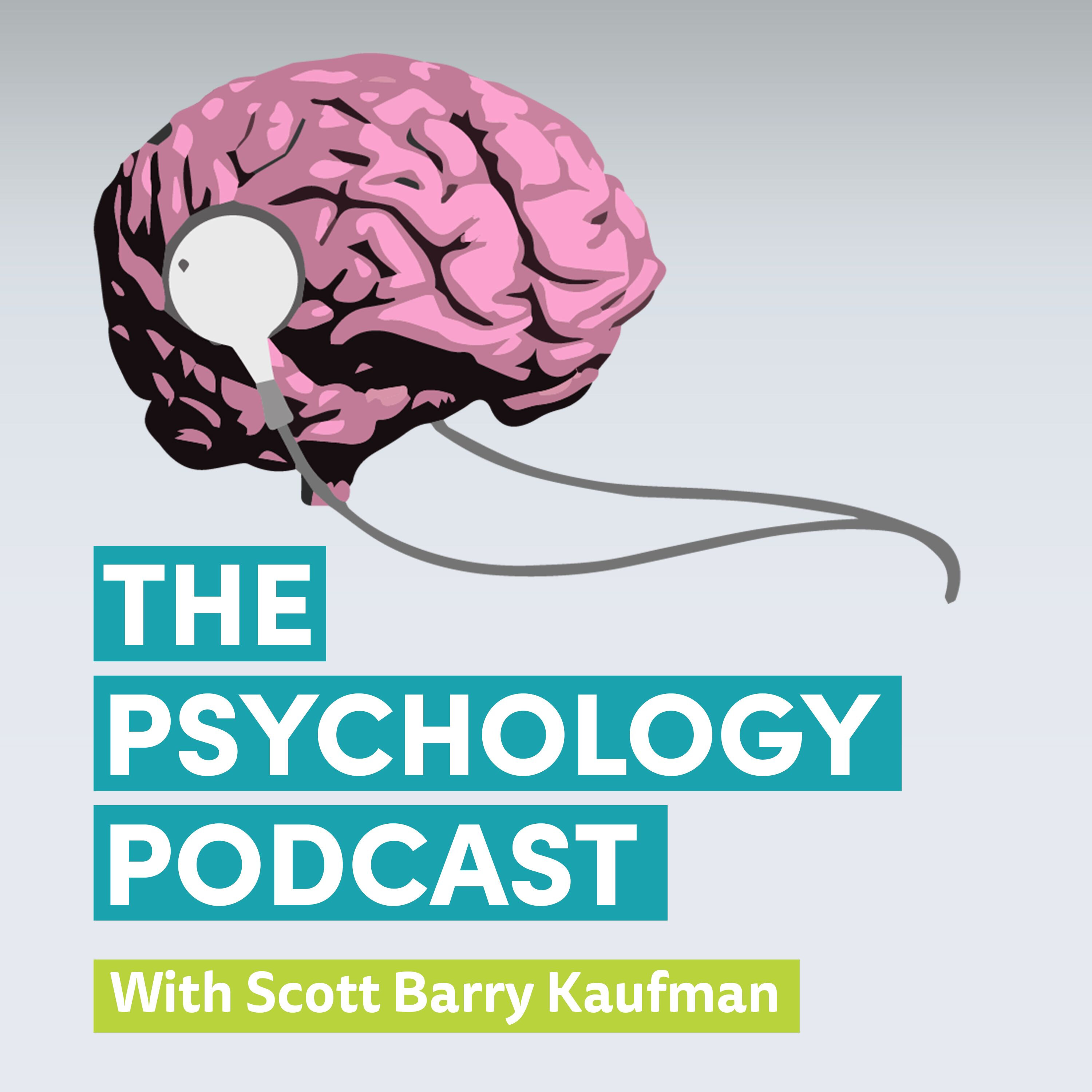
Noreena Hertz || How to Restore Human Connection
Today it’s great to chat with Noreena Hertz on the podcast. Noreena Hertz is a renowned thought leader, academic, and broadcaster, named by The Observer “one of the world’s leading thinkers” and by Vogue “one of the world’s most inspiring women.” Her previous bestsellers — The Silent Takeover, The Debt Threat, and Eyes Wide Open — have been published in more than twenty countries, and her opinion pieces have appeared in The New York Times, The Washington Post, The Wall Street Journal, The Guardian, and Financial Times. She has hosted her own show on SiriusXM and spoken at TED, the World Economic Forum in Davos, and Google Zeitgeist. Topics · The impact of technology on our social lives · How to boost the health of our society · The importance of local communities · “The loneliness economy” · The healthcare burden of loneliness · Combating loneliness in the workplace · How to give and receive care · “Blue zones" · How creating community helps our wellbeing · How to create communities for the elderly · Innovative methods to combat loneliness · How artificial intelligence can address loneliness Support this podcast: https://anchor.fm/the-psychology-podcast/supportSee omnystudio.com/listener for privacy information.
54:2603/06/2021
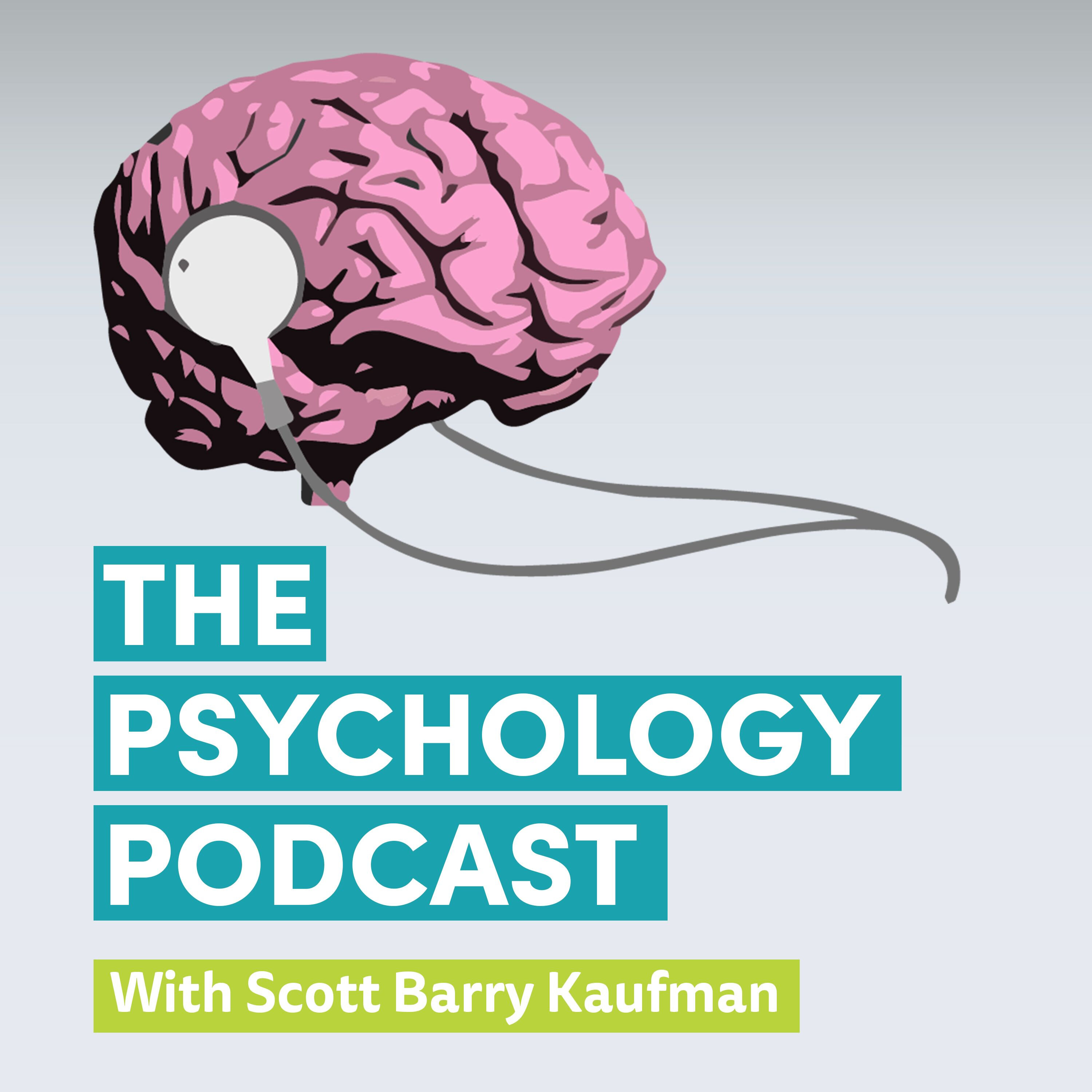
Christian Jarrett || The Science of Personality Change
Today it’s great to chat with Christian Jarrett on the podcast. A cognitive neuroscientist by training, Christian is Deputy Editor of Psyche, a global digital magazine that illuminates the human condition. Christian has written about psychology and neuroscience for publications across the world, including BBC Future, WIRED, New York magazine, New Scientist, GQ Italia and The Guardian. He was the founding editor and creator of the British Psychological Society's Research Digest, presenter of their PsychCrunch podcast, and an award-winning journalist on The Psychologist magazine. His books include The Rough Guide to Psychology and Great Myths of The Brain. His latest book is Be Who You Want: Unlocking The Science of Personality Change. Topics [1:48] How Christian burst out of his shell [4:32] The role of biology in temperament [6:52] How working on your physical health can influence your personality [8:11] How changing job roles can shape our personality [10:07] How our peers shape our personalities [12:17] The effect of stressors on a developing child’s personality [17:16] The impact of a child’s environment on their personality [20:04] The happy events in life that don’t positively affect personality [23:46] The lemon juice personality test [27:56] Christian’s thoughts on "cancel culture" [31:03] Christian discusses personality disorders [35:37] Why US presidents are more likely to display psychopathic traits [39:30] Challenge mindset vs. threat mindset Support this podcast: https://anchor.fm/the-psychology-podcast/supportSee omnystudio.com/listener for privacy information.
44:3927/05/2021
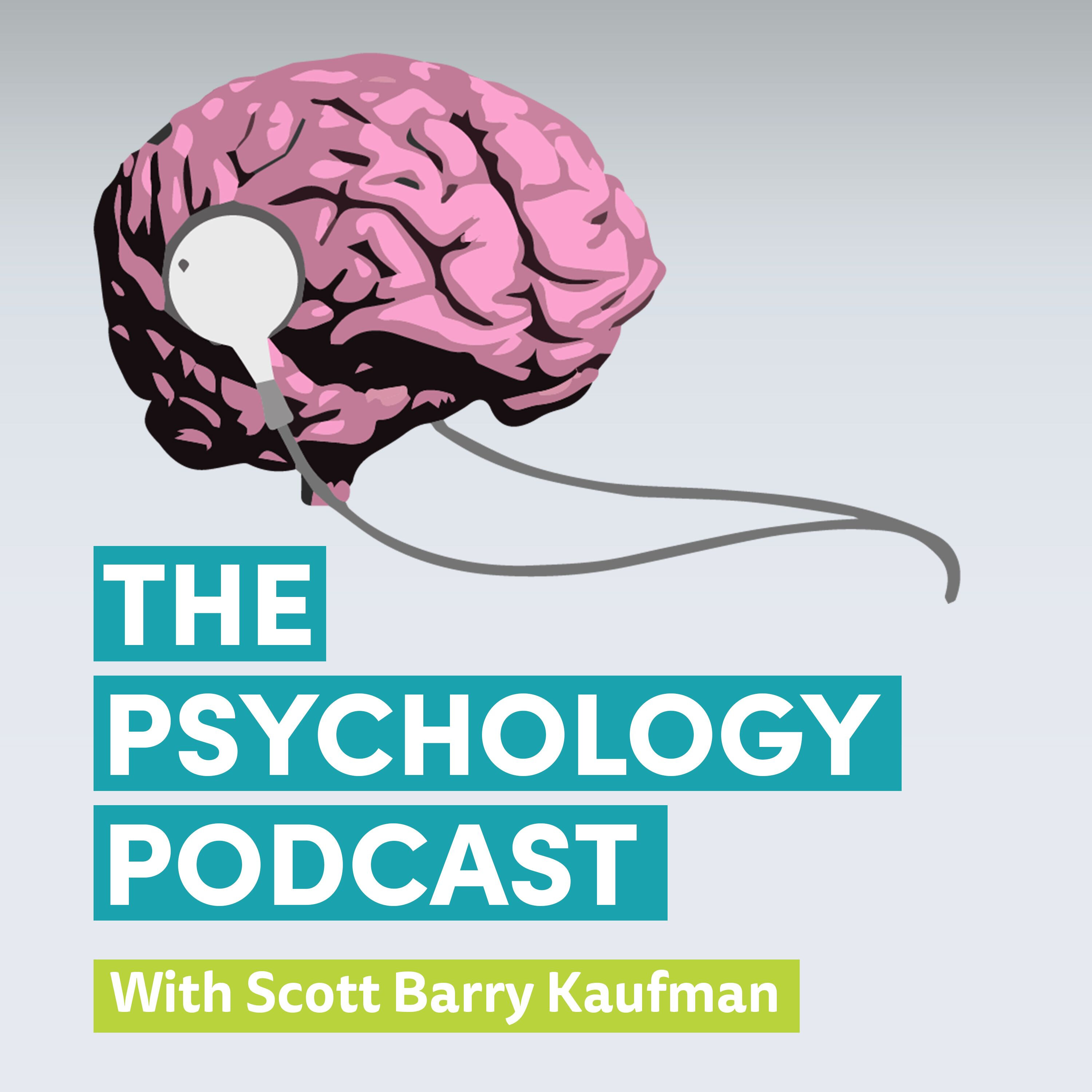
Tim Grover || The Victory Mentality
Today it’s great to have Tim Grover on the podcast. Tim is the CEO of Attack Athletics Inc. which he founded in 1989 and author of the international bestseller Relentless: From Good to Great to Unstoppable. World renowned for his work with Michael Jordan, Kobe Bryant, Dwayne Wade, and thousands of athletes and business professionals. He appears around the world as a keynote speaker and consultant to business leaders, athletes, and lead achievers in every field. His latest book is called Winning: The Unforgivable Race to Greatness. Topics [00:01:58] Tim’s childhood and upbringing [00:09:08] Choosing to become a professional trainer [00:11:50] From "fat kid" to competitive basketball player [00:16:26] "The most successful are the most coachable" [00:19:30] Victim Mentality vs. Victory Mentality [00:22:51] The early days of Tim’s career [00:25:46] Meeting and working with Michael Jordan [00:30:55] Michael Jordan’s feedback about Tim [00:33:54] Being a part of the Chicago Bulls Dynasty [00:41:50] Meeting Kobe Bryant [00:45:42] The phone call just before Kobe’s passing [00:50:39] "The unforgiveable race to winning" [00:54:48] The difference between competing and winning [00:56:40] The importance of grit for winning [01:01:36] How uplifting others is the ultimate win [01:05:11] Creating personal definitions of winning Support this podcast: https://anchor.fm/the-psychology-podcast/supportSee omnystudio.com/listener for privacy information.
01:09:2022/05/2021
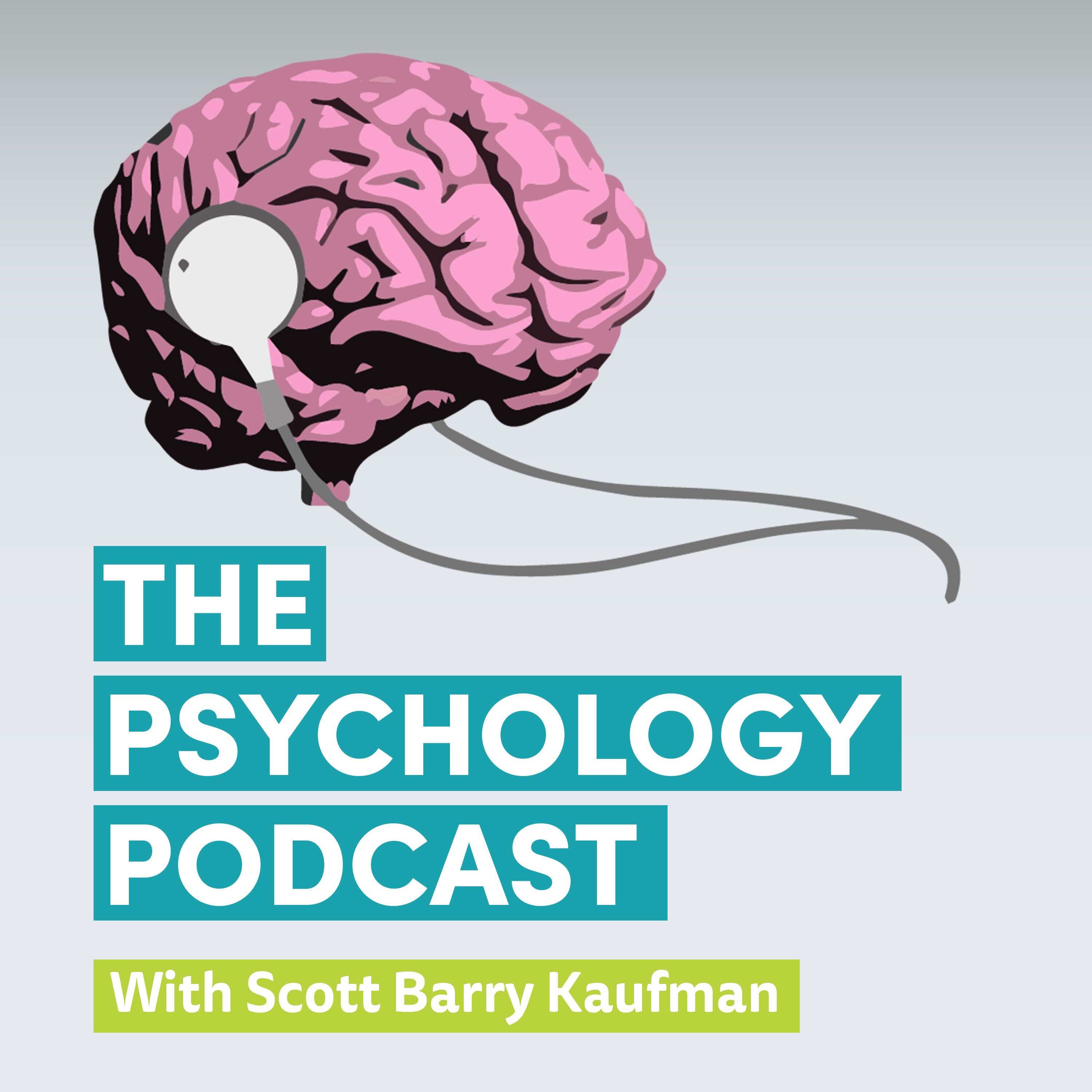
Bridget Phetasy || Why We Need More Humor
Bridget Phetasy is a writer and stand-up comedian. Bridget has contributed to a wide variety of publications such as SpectatorUSA, Huffington Post, Playboy, Tablet Magazine, The Washington Examiner, and more. As the owner and operator of Phetasy, Inc., she has built a digital media cul-de-sac, leveraging existing platforms such as Twitter, YouTube, and Locals to deliver insightful and compelling commentary and observations on current events. Her YouTube show Dumpster Fire is a satirical commentary on the ridiculousness of the 24-hour news cycle. Her weekly podcast, Walk-Ins Welcome, has become staple listening for many influencers in the social media space. Topics [5:16] The power and utility of humor [12:26] The usefulness of self-deprecating humor [14:22] Bridget’s thoughts on social media [21:21] Bridget discusses politics and values [28:00] Bridget’s thoughts on being “politically homeless” [31:31] The link between "commodified outrage" and histrionics [34:33] The issue of online "trauma-dumping" [36:21] The language of therapy out in the wild [39:23] The difference between "performative histrionics" and a genuine cry for help [43:32] The relationship between narcissism and technology [47:46] Why it’s so hard to do things that are good for us [50:27] Bridget’s thoughts on whether speech can be violent [55:15] What it was like being on Curb Your Enthusiasm [1:01:10] What it was like wearing a Tucker Carlson shirt for a week in LA [1:04:20] How to see both sides of an issue [1:09:09] Which lessons from AA could American politics benefit from? Support this podcast: https://anchor.fm/the-psychology-podcast/supportSee omnystudio.com/listener for privacy information.
01:08:3720/05/2021





